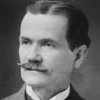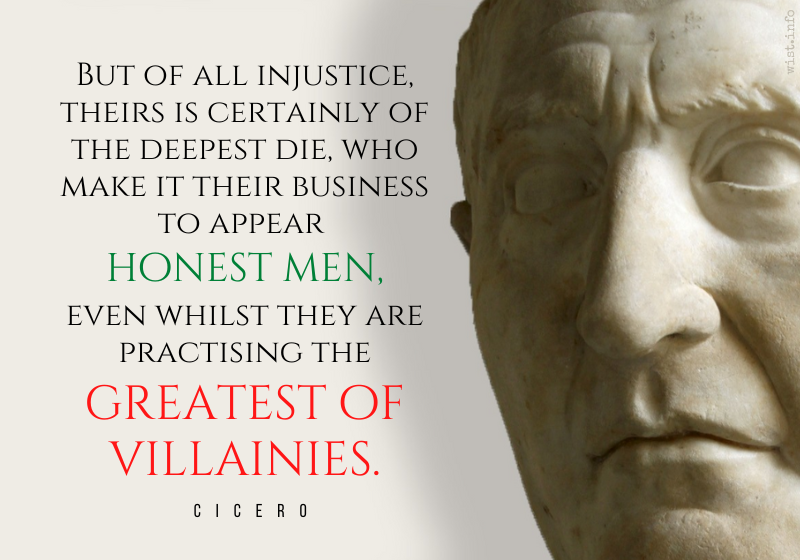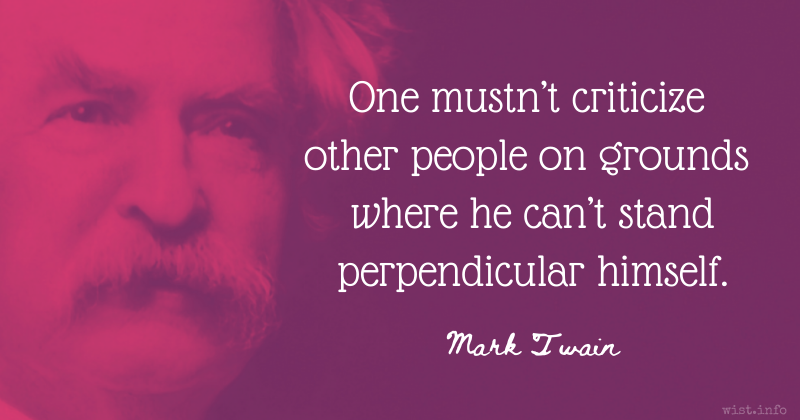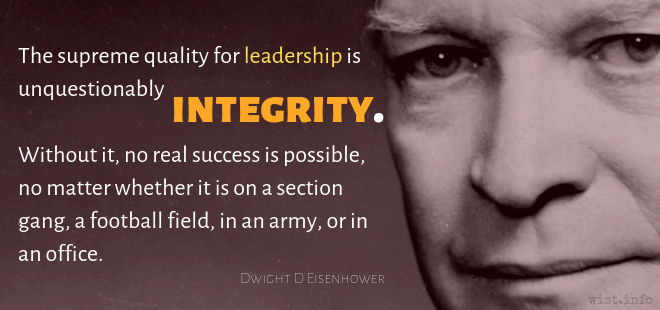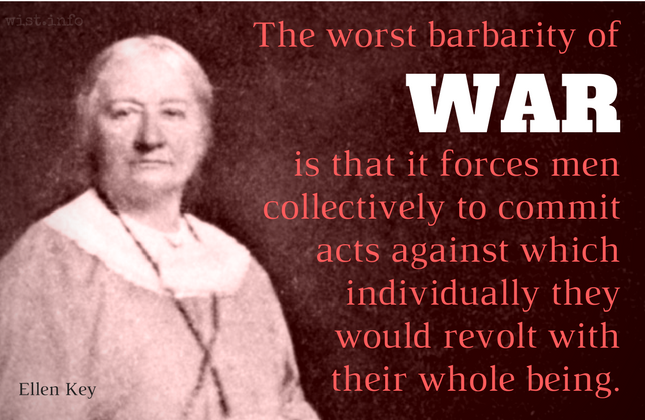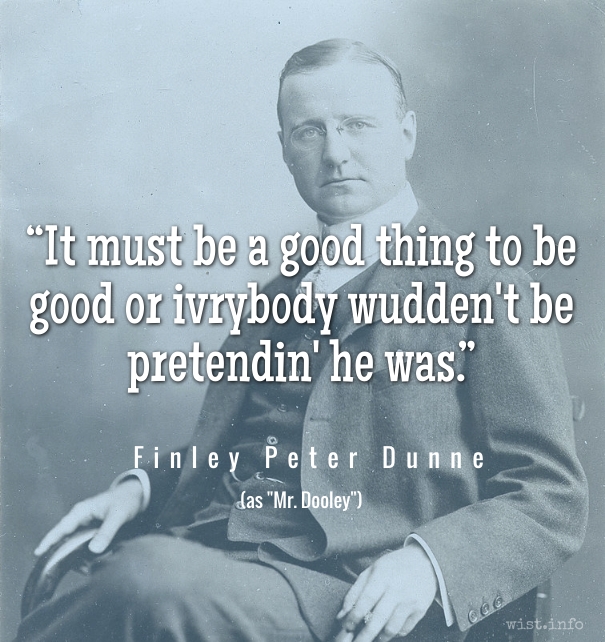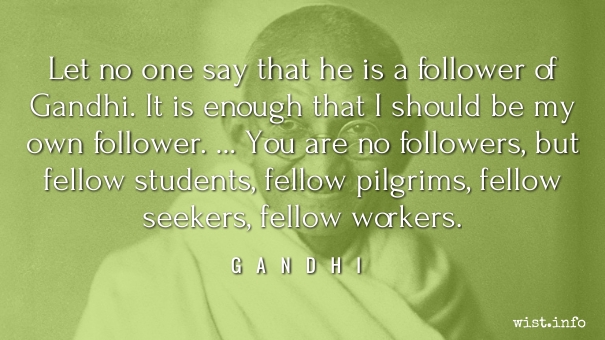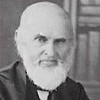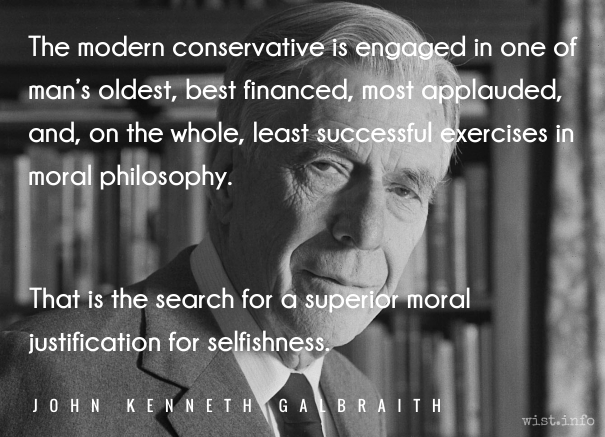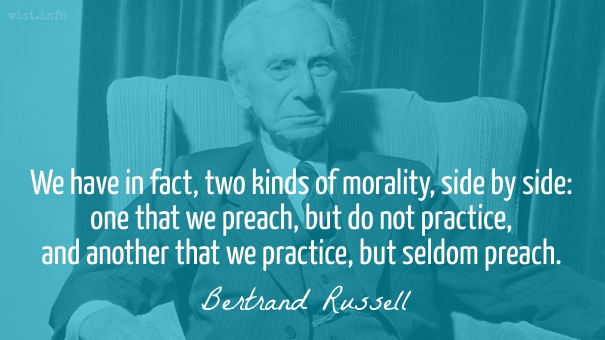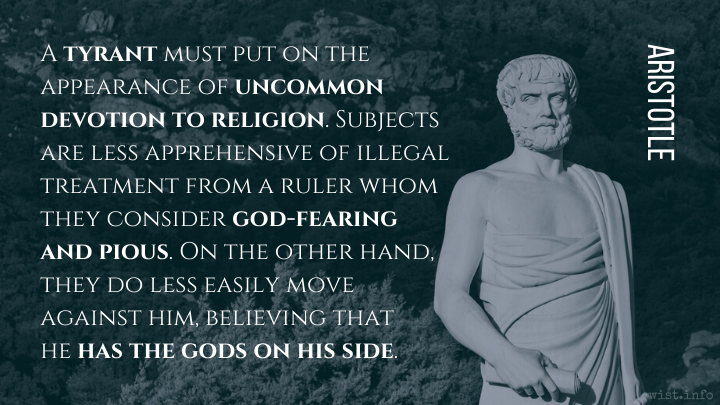When he [Bishop Myriel] saw everyone condemning very loudly and being very quick to express indignation, “Oh my,” he would say with a smile, “this looks like being a great crime that everyone commits. Here we have hypocrisies in fright, hurrying to protest and to take cover.”
[Quand il voyait tout le monde crier bien fort et s’indigner bien vite: — «Oh! oh! disait-il en souriant, il y a apparence que ceci est un gros crime que tout le monde commet. Voilà les hypocrisies effarées qui se dépêchent de protester et de se mettre à couvert.»]
Victor Hugo (1802-1885) French writer
Les Misérables, Part 1 “Fantine,” Book 1 “An Upright Man,” ch. 4 (1.1.4) (1862) [tr. Donougher (2013)]
(Source)
(Source (French)). Alternate translations:When he heard many exclaiming, and expressing great indignation against anything, “Oh! oh!” he would say, smiling. “It would seem that this is a great crime, of which they are all guilty. How frightened hypocrisy hastens to defend itself, and to get under cover.”
[tr. Wilbour (1862)]When he saw everybody cry out and grow indignant, all of a sudden, he would say with a smile, “Oh! oh, it seems as if this is a great crime which all the world is committing. Look at the startled hypocrites, hastening to protest and place themselves under cover.”
[tr. Wraxall (1862)]When he saw everyone exclaiming very loudly, and growing angry very quickly, "Oh! oh!" he said, with a smile; "to all appearance, this is a great crime which all the world commits. These are hypocrisies which have taken fright, and are in haste to make protest and to put themselves under shelter."
[tr. Hapgood (1887)]Any ill-considered outburst of popular indignation would cause him to smile. ‘It appears,’ he would say, ‘that this is a crime which everyone commits. See how outraged hypocrisy hurries to cover itself!’
[tr. Denny (1976)]When he heard people raising a hue and cry, easily finding fault, "Oh ho!" he would say, with a smile. "It would seem that this is a great crime that everyone commits. See how an offended hypocrisy is quick to protest and run for cover."
[tr. Wilbour/Fahnestock/MacAfee (1987)]
Quotations about:
hypocrisy
Note not all quotations have been tagged, so Search may find additional quotes on this topic.
They call for freedom and then they attack the courts which protect that freedom.
They call for freedom and they would strip away the rights of those accused of crime, rights developed over centuries to protect against arbitrary power.
They call for freedom and yet accuse their opponents of being soft on communism or even worse, branding as heretics or traitors all those who ever disagree with them.
They call for freedom and they attack our religious leaders for trying to exercise their ancient responsibility — as clergymen and citizens — to guide people in the course of life.
But worst of all, they call for freedom and yet they help create the atmosphere of hate and fear and suspicion in which individual liberty faces its maximum danger.Lyndon B. Johnson (1908-1973) American politician, educator, US President (1963-69)
Speech (1964-10-31), Presidential Campaign, Madison Square Garden, New York City
(Source)
On the Republican Goldwater/Miller ticket and their supporters during the 1964 elections.
We are held to our duty by laziness and timidity, but often our virtue gets all the credit.
[Pendant que la paresse et la timidité nous retiennent dans notre devoir, notre vertu en a souvent tout l’honneur.]François VI, duc de La Rochefoucauld (1613-1680) French epigrammatist, memoirist, noble
Réflexions ou sentences et maximes morales [Reflections; or Sentences and Moral Maxims], ¶169 (1665-1678) [tr. Tancock (1959)]
(Source)
Appeared in the 1st ed. (1665) as:While laziness and timidity alone have the merit of keeping us in our duty, our virtue often has all the honour.
[Pendant que la paresse et la timidité ont seules le mérite de nous tenir dans notre devoir, notre vertu en a souvent tout l’honneur.]
In the manuscript version this read:Shame, laziness and timidity alone retain the merit of holding us back from our duty, while our virtue has all the honor.
[La honte, la paresse et la timidité conservent toutes seules le mérite de nous retenir dans notre devoir, pendant que notre vertu en a tout l’honneur.]
In a letter to J. Esprit, La Roswchefoucauold phrased it this way:It must be admitted that virtue, by which we boast of doing everything good that we do, would not always have the strength to hold us back from the rules of our duty, if laziness, timidity, or shame did not make us see the disadvantages of departing from them.
[Il faut avouer que la vertu, par qui nous nous vantons de faire tout ce que nous faisons de bien, n’aurait pas toujours la force de nous retenir dans les règles de notre devoir, si la paresse, la timidité, ou la honte ne nous faisoient voir les inconvénients qu’il y a d’en sortir.]
Variations of this sentiment around the hypocrisy of vices serving as virtue show up a lot in La Rochefoucauld's maxims. See the Epigraph, and ¶¶ 1, 200, 205, 218, 220, 237, 241, 253, 266, 354, and 442.
(Source (French)). Alternate translations:We are many times kept within the limits of our duty by Shame, Sloth, and Timorousness, while in the mean time our Virtue hath all the credit of it.
[tr. Davies (1669), ¶5]Many People are kept within their Duty, because they have not the Courage, or will not be at the pains of being wicked; and in such cases oftentimes our Vertue runs away with all the Praise.
[tr. Stanhope (1694), ¶170]Idleness, timidity, and shame, often keep us within the bounds of duty; whilst virtue seems to run away with the honour.
[pub. Donaldson (1783), ¶233; ed. Lepoittevin-Lacroix (1797), ¶163]Idleness, timidity, or shame, often keeps us within the bounds of duty; whilst virtue seems to run away with the honour of it.
[ed. Carvill (1835), ¶202]Indolence and timidity often keep us to our duty, while our virtue carries off all the credit of doing so.
[ed. Gowens (1851), ¶172]Idleness and fear keeps us in the path of duty, but our virtue often gets the praise.
[tr. Bund / Friswell (1871), ¶169]Although it is frequently laziness and timidity that keep us within the path of duty, it is virtue that reaps the credit.
[tr. Heard (1917), ¶169]Though indolence and timidity keep us to the path of duty, virtue often gets all the credit.
[tr. Stevens (1939), ¶169]When laziness or cowardice keeps us to the path of duty, the credit is often given entirely to our honour.
[tr. FitzGibbon (1957), ¶169]When laziness and timidity yokes us to our duties, we often give virtue the credit for it.
[tr. Kronenberger (1959), ¶169]While it is idleness and timidity that retain us in our duty, our virtue takes all the credit.
[tr. Whichello (2016), ¶169]
HYPOCRITE, n. One who, professing virtues that he does not respect, secures the advantage of seeming to be what he despises.
Ambrose Bierce (1842-1914?) American writer and journalist
“Hypocrite,” The Cynic’s Word Book (1906)
(Source)
Included in The Devil's Dictionary (1911). Originally published in the "Devil's Dictionary" column in the San Francisco Wasp (1885-08-22).
Fear of change is, no doubt, in all of us, but it most afflicts the man who fears that any change must lead to loss of his wealth and status. When this fear becomes inordinate, he will, if he has political power, abrogate such things as civil rights and the rule of law, using the argument that he abrogates them only to preserve them. In my own country, the government, in order to preserve Christian civilization, uses methods incompatible with Christianity and abrogates values which are essential to any civilization which calls itself Christian. If only a man would say, “I do this because I’m afraid,” one could bear it; but when he says, “I do this because I’m good,” that is a bit too much.
The surest way to get a reputation as a liar is to pretend to be very good. The next surest way is to pretend to be very wicked.
H. L. Mencken (1880-1956) American writer and journalist [Henry Lewis Mencken]
A Little Book in C Major, ch. 2, § 7 (1916)
(Source)
Variants:LlAR. (a) One who pretends to be very good; (b) one who pretends to be very bad.
[A Book of Burlesques, "The Jazz Webster" (1924)]Liar — (a) One who pretends to be very good; (b) one who pretends to be very bad.
[Chrestomathy, ch. 30 "Sententiae" (1949)]
A musician would not willingly consent that his lyre should be out of tune, nor a leader of a chorus that his chorus should not sing in the strictest possible harmony; but shall each individual person be at variance with himself, and shall he exhibit a life not at all in agreement with his words?
[εἶτα μουσικὸς μὲν οὐκ ἂν ἑκὼν δέξαιτο ἀνάρμοστον αὐτῷ τὴν λύραν εἶναι, καὶ χοροῦ κορυφαῖος μὴ ὅτι μάλιστα συνᾷάδοντα τὸν χορὸν ἔχειν” αὐτὸς δέ τίς ἕκαστος διαστασιάσει πρὸς ἑαυτόν, καὶ οὐχὶ τοῖς λόγοις ὁμολογοῦντα τὸν βίον παρέξεται.]
Basil of Caesarea (AD 330-378) Christian bishop, theologian, monasticist, Doctor of the Church [Saint Basil the Great, Ἅγιος Βασίλειος ὁ Μέγας]
Address to Young Men on Reading Greek Literature, ch. 6, sec. 4 [tr. Deferrari/McGuire (1933)]
(Source)
The great majority of us are required to live a life of constant, systematic duplicity. Your health is bound to be affected if, day after day, you say the opposite of what you feel, if you grovel before what you dislike and rejoice at what brings you nothing but misfortune. Your nervous system isn’t a fiction, it’s a part of your physical body, and your soul exists in space and is inside you, like the teeth in your head. You can’t keep violating it with impunity.
Boris Pasternak (1890-1960) Russian poet, novelist, and literary translator
Doctor Zhivago [До́ктор Жива́го], Part 2, ch. 15 “Conclusion,” sec. 6 [Yury] (1955) [tr. Hayward & Harari (1958), UK ed.]
(Source)
Alternate translations:The great majority of us are required to live a life of constant, systematic duplicity. Your health is bound to be affected if, day after day, you say the opposite of what you feel, if you grovel before what you dislike and rejoice at what brings you nothing but misfortune. Our nervous system isn’t just a fiction, it’s a part of our physical body, and our soul exists in space and is inside us, like the teeth in our mouth. It can’t be forever violated with impunity.
[tr. Hayward & Harari (1958), US ed.]A constant, systematic dissembling is required of the vast majority of us. It’s impossible, without its affecting your health, to show yourself day after day contrary to what you feel, to lay yourself out for what you don’t love, to rejoice over what brings you misfortune. Our nervous system is not an empty sound, not a fiction. It’s a physical body made up of fibers. Our soul takes up room in space and sits inside us like the teeth in our mouth. It cannot be endlessly violated with impunity.
[tr. Pevear & Volokhonsky (2010)]
The objection to a scandal-monger is not that she tells of racy doings, but that she pretends to be indignant about them.
H. L. Mencken (1880-1956) American writer and journalist [Henry Lewis Mencken]
A Little Book in C Major, ch. 5, § 29 (1916)
(Source)
Altho’ thy Teacher act not as he preaches,
Yet ne’ertheless, if good, do what he teaches;
Good Counsel, failing Men may give; for why,
He that’s aground knows where the Shoal doth lie.
My old Friend Berryman, oft, when alive,
Taught others Thrift; himself could never thrive:
Thus like the Whetstone, many Men are wont
To sharpen others while themselves are blunt.Benjamin Franklin (1706-1790) American statesman, scientist, philosopher, aphorist
Poor Richard (1734 ed.)
(Source)
AGE, n. That period of life in which we compound for the vices that we still cherish by reviling those that we have no longer the enterprise to commit.
Ambrose Bierce (1842-1914?) American writer and journalist
“Age,” The Cynic’s Word Book (1906)
(Source)
Included in The Devil's Dictionary (1911).
Originally published in the "Devil's Dictionary" column in the San Francisco Wasp (1881-02-12).
So let’s be honest with ourselves and not take ourselves too serious, and never condemn the other fellow for doing what we are doing every day, only in a different way.
Will Rogers (1879-1935) American humorist
“Letter of a Self-Made Diplomat to His President,” Saturday Evening Post (1926-07-31)
(Source)
Collected in Letters of a Self-Made Diplomat to His President (1926).
We smile at the women who are eagerly following the fashions in dress whilst we are as eagerly following the fashions in thought.
Austin O'Malley (1858-1932) American ophthalmologist, professor of literature, aphorist
Keystones of Thought (1914)
(Source)
Nothing enlarges more the Gulf of Atheism, than that Μέγα Χάσμα, wide passage, which lies between the Faith and Lives of Men pretending to be Christians.
Edward Stillingfleet (1635-1699) British Christian theologian, polemicist, preacher, prelate
Origines Sacræ, “The Epistle Dedicatory” (1663)
(Source)
The greatest single cause of atheism in the world today is Christians who acknowledge Jesus with their lips and walk out the door and deny Him by their lifestyle. That is what an unbelieving world simply finds unbelievable.
All men are frauds. The only difference between them is that some admit it. I myself deny it.
H. L. Mencken (1880-1956) American writer and journalist [Henry Lewis Mencken]
A Little Book in C Major, ch. 2, § 16 (1916)
(Source)
We want perfection in other people, and yet we do not put right our own failings. We want to see others firmly corrected, but we refuse correction ourselves. We take offence when permission is given to others, but we do not want our own requests refused. We want rules to check the activities of others, but we are indignant at restrictions on ourselves.
[Libenter videmus alios perfectos, sed tamen proprios non emendamus defectus. Volumus quod alii districte corrigantur, et nos ipsi corrigi nolumus, aut negari quod petimus. Alios restringi per statuta volumus, et ipsi nullatenus patimur amplius cohiberi.]
Thomas à Kempis (c. 1380-1471) German-Dutch priest, author
The Imitation of Christ [De Imitatione Christi], Book 1, ch. 16, v. 2ff (1.16.2-3) (c. 1418-27) [tr. Knott (1962)]
(Source)
(Source (Latin)). Alternate translations:We would gladly have others perfect, but will not amend our own defaults. We would that others should be straitly corrected for their offences, but we will not be corrected. It misliketh us that others have liberty, but we will not be denied of that we ask. We would also that others should be restrained according to the statutes, but we in nowise will be restrained.
[tr. Whitford/Raynal (1530/1871)]We would gladly have others perfect, yet we will not amend our own faults. We desire others to be strictly corrected for their offenses, yet we will not be corrected. We dislike it that others have liberty, yet we will not be denied what we ask. We desire that others should be restrained according to the laws, yet we will in no way be restrained.
[tr. Whitford/Gardiner (1530/1955)]It is injustice to expect that in another which thou hast not in thy self, to looke for perfection in others, and yet not to amend imperfections in our selves. We will have others severely punisht, and will not amend our selves; the large liberty of others disliketh us, and yet we will not have our desires deni'd us, we will have rigorous Lawes imposed upon others, but in no sort will we our selves be restrained.
[tr. Page (1639), 1.16.8-9]And, indeed, nothing is more common, than to express exceeding Zeal in amending our Neighbours, and mighty Indignation against Their Vices or Imperfections, while at the same time we neglect the beginning at Home, and either quite overlook, or seem highly contented with our own. We set up for Reformers, declaim at the Wickendess of the Age, and are all for suppressing and punishing it by vigorous Laws; and yet are unwilling that any Check or Restraint should be put upon our own Freedoms.
[tr. Stanhope (1696; 1706 ed.)]But we require perfection in the rest of mankind, and take no care to rectify the disorders of our own heart; we desire that the faults of others should be severely punished, and refuse the gentlest correction ourselves; we are offended at their licentiousness, and yet cannot bear the least opposition to our own immoderate desires. We would subject all to the control of rigorous statute and penal laws, but will not suffer any restraint upon our own actions.
[tr. Payne (1803), 1.16.3]We would willingly have others perfect, and yet we amend not our own faults. We will have others severely corrected, and will not be corrected ourselves. The large liberty of others displeaseth us; and yet we will not have our own desires denied us. We will have others kept under by strict laws; but in no sort will ourselves be restrained.
[ed. Parker (1841)]We willingly require perfection in the rest of mankind, and yet do not rectify the disorders of our own hearts. We desire that the faults of others should be severely punished, and refuse the gentlest correction ourselves. We are offended at their licentiousness, and yet cannot bear the least denial of our own immoderate desires. We would subject all to the control of rigorous statutes, but suffer no restraint upon our own action.
[tr. Dibdin (1851)]We would fain have others perfect, and yet we amend not our own defects. We would have others strictly corrected, but will not be corrected ourselves. The large liberty of others displeases us, and yet we would not be denied anything we ask for. We wish others to be bound down by laws, and we suffer ourselves to be in no sort restrained.
[ed. Bagster (1860)]We are ready to see others made perfect, and yet we do not amend our own shortcomings. We will that others be straitly corrected, but we will not be corrected ourselves. The freedom of others displeaseth us, but we are dissatisfied that our own wishes shall be denied us. We desire rules to be made restraining others, but by no means will we suffer ourselves to be restrained.
[tr. Benham (1874)]We are desirous to have others perfect, and yet we amend not our own faults. We will have others severely corrected, and will not be corrected ourselves. The large liberty of others displeaseth us; and yet we will not have our own desires denied us. We will have others kept under by strict laws; but in no sort will we ourselves be restrained.
[tr. Anon. (1901)]We want them to be perfect, yet we do not correct our own faults. We wish them to be severely corrected, yet we will not correct ourselves. Their great liberty displeases us, yet we would not be denied what we ask. We would have them bound by laws, yet we will allow ourselves to be restrained in nothing.
[tr. Croft/Bolton (1940)]We would readily have others perfect and yet not amend our own defects. We want others rigidly corrected and are unwilling to be corrected ourselves. The wide freedom of others displeases us, and yet we would not be denied whatever we ask. We wish others to be bound by rules, and will ourselves in no way be held in.
[tr. Daplyn (1952)]For we require other people to be perfect, but do not correct our own faults. We wish to see others severely reprimanded; yet we are unwilling to be corrected ourselves. We wish to restrict the liberty of others, but are not willing to be denied anything ourselves. We wish others to be bound by rules, yet we will not let ourselves be bound.
[tr. Sherley-Price (1952)]We like to have everybody around us quite perfect, but our own faults -- we never seem to correct them. Tom, Dick and Harry must be strictly called to order, but we aren't fond of being called to order ourselves. It is always the other man that has too much rope given him -- our wishes must not be thwarted; rules for everybody else, but our own liberties must not be abridged for a moment.
[tr. Knox-Oakley (1959), 1.16.3]Though quick to expect perfection in others, we take little care to correct our own shortcomings. We wouidl have others strictly corrected, but not ourselves. The wide freedom of others displeases us, yet we wish to be denied nothing that we ourselves desire. We would have others under the restraint of the rule while unwilling ourselves to be under any sort of restraint.
[tr. Rooney (1979)]We would willingly have others be perfect, and yet we fail to correct our own faults. We want others to be strictly corrected, and yet we are unwilling to be corrected ourselves. Other peoples' far-ranging freedom annoys us, and yet we insist on having our own way. We wish others to be tied down by rules, and yet we will not allow ourselves to be held in check in any way at all.
[tr. Creasy (1989)]
The last few days I have read various addresses made on Lincoln’s Birthday. Every Politician always talks about him, but none of them ever imitate him.
We must not allow Negroes to be men, lest we ourselves should be suspected of not being Christians.
Charles-Lewis de Secondat, Baron de Montesquieu (1689-1755) French political philosopher
The Spirit of Laws [De l’esprit des lois], Vol. 1, Book 15, ch. 5 (1748)
In a satirical set of justifications for slavery of Africans (an institution Montesquieu generally condemned).
This form of the phrase was commonly used by American abolitionists, e.g., used as an epigram in Lydia Maria Child, An Appeal in Favor of That Class of Americans Called Africans, ch. 6 (1836).
French original text:Il est impossible que nous supposions que ces gens-là soient des hommes, parce que, si nous les supposions des hommes, on commencerait à croire que nous ne sommes pas nous-mêmes chrétiens.
Alternate translations:It is impossible for us to suppose these creatures to be men, because allowing them to be men, a suspicion would follow, that we ourselves are not Christians.
[tr. Nugent (1758 ed.)]It is impossible for us to assume that these people are men because if we assumed they were men one would begin to believe that we ourselves were not Christians.
[tr. Cohler/Miller/Stone (1989)]
But although tact is a virtue, it is very closely allied to certain vices; the line between tact and hypocrisy is a very narrow one. I think the distinction comes in the motive: when it is kindliness that makes us wish to please, our tact is the right sort; when it is fear of offending, or desire to obtain some advantage by flattery, our tact is apt to be of a less amiable kind.
Bertrand Russell (1872-1970) English mathematician and philosopher
“On Tact,” New York American (1933-02-01)
(Source)
Whereas I formerly believed it to be my bounden duty to call others to order, I must now admit that I need calling to order myself, and that I would do better to set my own house to rights first.
Carl Jung (1875-1961) Swiss psychologist
“The Spiritual Problem of Modern Man,” ¶ 162 (1928)
(Source)
Fraud, which so gnaweth at all men’s conscience,
A man may use on one who trusts him best
And on him also who risks no confidence.
This latter mode seems only to arrest
The love which Nature meaneth to endure;
Hence in the second circle huddled nest
Hypocrisy, flattery; they who would conjure
By spells; and simony; the thief, the cheat,
Pandars and barrators, and the like ordure.[La frode, ond’ogne coscïenza è morsa,
può l’omo usare in colui che ‘n lui fida
e in quel che fidanza non imborsa.
Questo modo di retro par ch’incida
pur lo vinco d’amor che fa natura;
onde nel cerchio secondo s’annida
ipocresia, lusinghe e chi affattura,
falsità, ladroneccio e simonia,
ruffian, baratti e simile lordura.]Dante Alighieri (1265-1321) Italian poet
The Divine Comedy [Divina Commedia], Book 1 “Inferno,” Canto 11, l. 52ff (11.52-60) [Virgil] (1309) [tr. Binyon (1943)]
(Source)
On the punishment of common fraudsters, who do not betray a personal trust but only the natural love of humanity. This is still deemed worse, in Dante's cosmology, than deadly "bestial" violence.
Barratry is the sale of justice, employment, or public offices, going alongside simony, the sale of holy offices.
(Source (Italian)). Alternate translations:That Fraud of which each Conscience feels the pangs
Man may commit 'gainst those who do confide
In him, as well as those who trust him not.
The first unhappily destroys the Bond
In general by Nature form'd: from whence
Confined in the second Circle are
The Hypocrites, the Flatterers, and they
Who practice Coz'ning, Sorcery, and Theft,
Base Simony, procuring with a smile,
Masked Deceit, and all such filthy tricks.
[tr. Rogers (1782), l. 53ff]Fraud skulks below with all her various brood,
There darkling dwell the foes of public good.
The pilf'rer, and the cheat, his dark ally:
With those, whose felon hand their trust betray'd,
Hypocrisy in faintly garb array'd.
Corruption foul, and frontless Perjury.
[tr. Boyd (1802), st. 8]Fraud, that in every conscience leaves a sting,
May be by man employ’d on one, whose trust
He wins, or on another who withholds
Strict confidence. Seems as the latter way
Broke but the bond of love which Nature makes.
Whence in the second circle have their nest
Dissimulation, witchcraft, flatteries,
Theft, falsehood, simony, all who seduce
To lust, or set their honesty at pawn,
With such vile scum as these.
[tr. Cary (1814)]Fraud, to the stricken conscience inly known,
Might man devise on him who faith disbursed,
And eke on him who credence had not shown.
The bond of love which nature framed at first.
But only that, the latter mode hath slain,
Whence nesting in the second orb lie curst
Hypocrites, and flatterers, and the wizard train,
Falseness, and simonies, and pilferers' trade,
Panders, and cheats, and all of foulest stain.
[tr. Dayman (1843)]Fraud, which gnaws every conscience, a man may practice upon one who confides in him; and upon him who reposes no confidence.
This latter mode seems only to cut off the bond of love which Nature makes: hence in the second circle nests
hypocrisy, flattery, sorcerers, cheating, theft and simony, pandars, barrators, and like filth.
[tr. Carlyle (1849)]And fraud, that every conscience can corrode --
Fraud may be practiced against them who trust,
And those who put no confidence in dust.
This seems to come behind, it only slays
The kindly chains of love that nature binds
Hence, in the lower circle, station finds
Hypocrisy, flattery and sorcery;
Falsification, robbery, simony,
Seduction, quarrels, and brutality.
[tr. Bannerman (1850)]That fraud, which sharply, ev'ry conscience bites,
Man against those who trust in him may use,
Or against those by whom no trust is giv'n.
This latter seems to rend in twain the bond
Which Nature in her love for us hath made;
Whence in the second circle such are held;
Magic, hypocrisy, and flatters,
Vile falsehood, robbery and simony,
Panders and Userers, and such foul stuff.
[tr. Johnston (1867)]Fraud, wherewithal is every conscience stung,
A man may practise upon him who trusts,
And him who doth no confidence imburse.
This latter mode, it would appear, dissevers
Only the bond of love which Nature makes;
Wherefore within the second circle nestle
Hypocrisy, flattery, and who deals in magic,
Falsification, theft, and simony,
Panders, and barrators, and the like filth.
[tr. Longfellow (1867)]The fraud, wherewith every conscience is pricked, man can practise towards the one who trusts him, and towards him who has no confidence in store. This latter mode seems to destroy only the bond of love that nature makes; whence in the second circle have their nests hypocrisy, flatteries, and whoso uses arts; forgery, robbery, and simony; pandars, jobbers, and suchlike filth.
[tr. Butler (1885)]Such fraud, for which all must compunction feel.
Can man exert 'gainst him whose trust he shares,
And him whose thoughts no confidence reveal.
This latter fashion all unseemly tears
The golden chain of love which Nature weaves.
Whence gather in the second circle's lairs
Hypocrisy, all flattery that deceives,
Witchcraft, lies, thefts, the Simoniac blot.
Panders, chicaners, and all similar thieves.
[tr. Minchin (1885)]Fraud, by which every conscience is bitten, man may practice on one that confides in him, or on one that owns no confidence. This latter mode seemeth to destroy only the bond of love that nature makes; wherefore in the second circle nestle hypocrisy, flatteries, and sorcerers, falsity, robbery, and simony, panders, barrators, and such like filth.
[tr. Norton (1892)]Fraud, with which there is no conscience but is bitten, a man may practise upon one who putteth his trust in him; and upon one who giveth no credit for fidelity. This last kind seemeth only to sever the bond of love which nature weaveth; and therefore is it that in the second circle there nestle hypocrisy, flattery, workers of sorcery, treachery, robbery and simony, panders, barrators, and such-like refuse.
[tr. Sullivan (1893)]Fraud, wherewithal is bitten every conscience,
A man may use regarding one who trusts him,
Or one who has no store of trust to deal with.
This latter way, as it would seem, slays only
The tie of love that nature itself fashions;
Whence make their nest within the second circle
Hypocrisy, smooth speeches, and bewitchment,
Forgery, thieving, and the sin of Simon,
Panders, and jobbers, and the like offscouring.
[tr. Griffith (1908)]Fraud, which always stings the conscience, a man may practice on one who confides in him or on one who does not so place his confidence; it is evident that this latter way destroys simply the bond of love which nature makes, so that in the next circle, hypocrisy, flatteries, sorceries, falsifications, theft, and simony, panders, jobbers, and like filth have their nest.
[tr. Sinclair (1939)]Fraud, which gnaws at every conscience, may be a breach
Of trust against the confiding, or deceive
Such as repose no confidence; though each
Is fraud, the latter sort seems but to cleave
The general bond of love and Nature's tie;
So the second circle opens to receive
Hypocrites, flatterers, dealers in sorcery,
Panders and cheats, and all such filthy stuff,
With theft, and simony and barratry.
[tr. Sayers (1949)]Fraud, which is a canker to every conscience,
may be practiced by a man on those who trust him,
and on those who have reposed no confidence.
This latter mode seems only to deny
the bond of love which all men have from Nature;
therefore within the second circle lie
simoniacs, sycophants, and hypocrites,
falsifiers, thieves, and sorcerers,
grafters, pimps, and all such filthy cheats.
[tr. Ciardi (1954)]Fraud, which gnaws at every conscience, a man may practice upon one who trusts in him, or upon one who reposes no condifence. This altter way seems to sever only the bond of love which nature makes; wherefore in the second circle hypocrisy, flatteries, sorcerers, falsity, theft, simony, panders, barratry, and like filth have their nest.
[tr. Singleton (1970)]Fraud, that gnaws the conscience of its servants,
can be used on one who puts his trust in you
or else on one who has no trust invested.
This latter sort seems only to destroy
the bond of love that Nature gives to man;
so in the second circle there are nests
of hypocrites, flatterers, dabblers in sorcery,
falsifiers, thieves and simonists,
panders, seducers, grafters and like filth.
[tr. Musa (1971)]Now fraud, that eats away at every conscience,
is praticed by a man against another
who trusts in him, or one who has no trust.
This latter way seems only to cut off
the bond of love that nature forges; thus,
nestled within the second circle are:
hypocrisy and flattery, sorcerers,
and falsifiers, simony, and theft,
and barrators and panders and like trash.
[tr. Mandelbaum (1980)]Fraud, by which every conscience is bitten,
A man may practice on a person who trusts him
Or upon one who has no confidence in him.
This latter mode cuts only the bond of love
Which nature itself establishes;
And so there are, lodged in the second circle,
Hypocrisy, flatterers, and those who delude,
Falsity, thieving and simony,
Pimps, trouble-makers, and all such-like scum.
[tr. Sisson (1981)]Fraud, which bites every conscience, a man may play
Either on one who trusts him, or one who does not.
The latter of the two is seen to destroy
Only those bonds of love that nature makes:
So in the second circle hypocrisy,
Flatterers, sorcery, larceny, simoniacs,
With pimps, barrators, and such filth have their nest.
[tr. Pinsky (1994), ll. 53-59]Fraud, which bites at every mind, a man can use against one who trusts in him or against one who has in his purse no cause for trust.
This latter mode seems to cut solely into the bond of love that Nature makes; thus in the second circle find their nest
hypocrisy, flattery, casters of spells, impersonators, thievery and simony, panders, embezzlers, and similar filth.
[tr. Durling (1996)]Human beings may practise deceit, which gnaws at every conscience, on one who trusts them, or on one who places no trust. This latter form of fraud only severs the bond of love that Nature created, and so, in the eighth circle, are nested hypocrisy; sorcery; flattery; cheating; theft and selling of holy orders; pimps; corrupters of public office; and similar filth.
[tr. Kline (2002)]As for deceit -- which gnaws all rational minds --
we practise this on those who trust in us,
or those whose pockets have no room for trust.
Fraud of the second kind will only gash
the ligature of love that Nature forms:
and therefore in great Circle Two there nests
smarm and hypocrisy, the casting-up of spells,
impersonation, thievery, crooked priests,
embezzlement and pimping, such like scum.
[tr. Kirkpatrick (2006)]Fraud gnaws at every conscience,
whether used on him who trusted
or on one who lacked such faith.
Fraud against the latter only severs
the bond of love that nature makes.
Thus in the second circle nest
hypocrisy, flatteries, and sorcerers;
lies, theft, and simony;
panders, barrators, and all such filth.[tr. Hollander/Hollander (2007)]Fraud will gnaw at the conscience, but a man may bury
His heart and cheat the people who believe in him --
But trust's not needed, just opportunity.
This sinning slices away the soft-tied tether
Of love, prepared for us by Nature. The second
Circle is therefore a nest for flatterers
And hypocrites and liars, and those who press
Illiterate fools for high Church office, well-paid
For their filthy work, and bawds, and all such festering
Sores.
[tr. Raffel (2010)]Fraud eats the conscience, whether used against
Those who trust us, or those who trust us not.
In the latter case, the bonds of love dispensed
By nature are undone. Thus you have got,
In Circle Eight, toadies and hypocrites,
Magicians, forgers, thieves, thugs, dealers in
Holy preferment, everything that fits
The definition of sheer filth.
[tr. James (2013)]
Well, we cuss the lawmakers. But I notice we’re always perfectly willin’ to share in any of the sums of money that they might distribute.
Hypocrisy is the tribute that vice pays to virtue.
[L’hypocrisie est un hommage que le vice rend à la vertu.]
François VI, duc de La Rochefoucauld (1613-1680) French epigrammatist, memoirist, noble
Réflexions ou sentences et maximes morales [Maxims], ¶ 218 (1665-1678) [tr. FitzGibbon (1957)]
(Source)
(Source (French)). Alternate translations:Hypocrisie is a Sort of Homage which Vice pays to Vertue.
[tr. Stanhope (1694), ¶ 219]Hypocrisy is the homage that vice pays to virtue.
[pub. Donaldson (1783), ¶ 231; ed. Lepoittevin-Lacroix (1797), ¶ 209; ed. Carville (1835), ¶ 449; tr. Bund/Friswell (1871), ¶ 218]Hypocrisy is the homage that vice renders to virtue.
[ed. Gowens (1851), ¶ 227]Hypocrisy is a tribute vice pays to virtue.
[tr. Heard (1917), ¶ 223; tr Tancock (1959), ¶ 218]Hypocrisy is a sort of homage which vice pays to virtue.
[tr. Stevens (1939), ¶ 218]Hypocrisy is the homage vice offers to virtue.
[tr. Kronenberger (1959), ¶ 218]Hypocrisy is a form of homage that vice pays to virtue.
[tr. Whichello (2016), ¶ 218]
All the higher animals have methods of expressing pleasure, but human beings alone express pleasure when they do not feel it. This is called politeness and is reckoned among the virtues.
Bertrand Russell (1872-1970) English mathematician and philosopher
“On smiling,” New York American (1932-08-17)
(Source)
This Sir, was a time in which you clearly saw into the injustice of a State of Slavery, and in which you had just apprehensions of the horrors of its condition, it was now Sir, that your abhorrence thereof was so excited, that you publickly held forth this true and invaluable doctrine, which is worthy to be recorded and remember’d in all Succeeding ages. “We hold these truths to be Self evident, that all men are created equal, and that they are endowed by their creator with certain unalienable rights, that among these are life, liberty, and the pursuit of happyness.”
Here Sir, was a time in which your tender feelings for your selves had engaged you thus to declare, you were then impressed with proper ideas of the great valuation of liberty, and the free possession of those blessings to which you were entitled by nature; but Sir how pitiable is it to reflect, that altho you were so fully convinced of the benevolence of the Father of mankind, and of his equal and impartial distribution of those rights and privileges which he had conferred upon them, that you should at the Same time counteract his mercies, in detaining by fraud and violence so numerous a part of my brethren under groaning captivity and cruel oppression, that you should at the Same time be found guilty of that most criminal act, which you professedly detested in others, with respect to yourselves.
A man who parades his piety is one who, under an atheist king, would be an atheist.
[Un dévot est celui qui, sous un roi athée, serait athée.]
Jean de La Bruyère (1645-1696) French essayist, moralist
The Characters [Les Caractères], ch. 13 “Of the Fashion [De la Mode],” § 21 (13.21) (1688)
(Source)
La Bruyère notes in the original this refers to a "faux dévot."
(Source (French)). Alternate translations:An Hypocrite is one that will be an Atheist under a King that is so.
[Bullord ed. (1696)]A Devote is one, that under a King who was an Atheist, would be a Devote.
[Curll ed. (1713)]A Devoto is one, that under an atheistical King wouild be an Atheist.
[Browne ed. (1752)]A pious person is one who, under an atheistical king, would be an atheist.
[tr. Van Laun (1885)]A pious hypocrite is one who, under an atheistic king, would be an atheist.
[tr. Stewart (1970)]
I have often wondered, that persons who make a boast of professing the Christian religion, namely, love, joy, peace, temperance, and charity to all men, should quarrel with such rancorous animosity, and display daily towards one another such bitter hatred, that this, rather than the virtues they claim, is the readiest criterion of their faith.
Baruch Spinoza (1632-1677) Dutch philosopher
Theological-Political Treatise [Tractatus Theologico-Politicus], Part 1, Preface, sec. 23 (1670)
(Source)
But of all injustice, theirs is certainly of the deepest die, who make it their business to appear honest men, even whilst they are practising the greatest of villainies.
[Totius autem iniustitiae nulla capitalior quam eorum, qui tum, cum maxime fallunt, id agunt, ut viri boni esse videantur.]
Marcus Tullius Cicero (106-43 BC) Roman orator, statesman, philosopher
De Officiis [On Duties; On Moral Duty; The Offices], Book 1, ch. 13 (1.13) / sec. 41 (44 BC) [tr. Cockman (1699)]
(Source)
(Source (Latin)). Alternate translations:No act of injustice is more pernicious than theirs, who while they are attempting the greatest deceit, labor to appear good men.
[tr. McCartney (1798)]But in the whole system of villainy, none is more capital than that of the men, who, when they most deceive, so manage as that they may seem to be virtuous men.
[tr. Edmonds (1865)]But of all forms of injustice, none is more heinous than that of the men who, while they practise fraud to the utmost of their ability, do it in such a way that they appear to be good men.
[tr. Peabody (1883)]The most criminal injustice is that of the hypocrite who hides an act of treachery under the cloak of virtue.
[tr. Gardiner (1899)]No iniquity is more deadly than that of those who, when they are most at fault, so behave as to seem men of integrity.
[ed. Harbottle (1906)]But of all forms of injustice, none is more flagrant than that of the hypocrite who, at the very moment when he is most false, makes it his business to appear virtuous.
[tr. Miller (1913)]Taking all forms of injustice into account, none is more deadly than that practiced by people who act as if they are good men when they are being most treacherous.
[tr. Edinger (1974)]
Vices can be elevated, but are always base. Some people see a certain hero with a certain fault, but they don’t realize it wasn’t the fault that made him a hero. An example of people in high places is so persuasive that it makes people imitate even their ugliness. Adulation mimics even an ugly face, without realizing that what is hidden by greatness is abominated when greatness is lacking.
[Bien pueden estar los vicios realzados, pero no son realces. Ven algunos que aquel héroe tuvo aquel accidente, pero no ven que no fue héroe por aquello. Es tan retórico el ejemplo superior, que aun las fealdades persuade; hasta las del rostro afectó tal vez la lisonja, no advirtiendo que, si en la grandeza se disimulan, en la bajeza se abominan.]
Baltasar Gracián y Morales (1601-1658) Spanish Jesuit priest, writer, philosopher
The Art of Worldly Wisdom [Oráculo Manual y Arte de Prudencia], § 186 (1647) [tr. Maurer (1992)]
(Source)
(Source (Spanish)). Alternate translation:Vices may very well be exalted, but not exalt. Some observe, that such a Heroe hath had such a Vice, but they consider not, that it was not that Vice which made him a Heroe. The example of great men is so good an Oratour, that it persuades one to infamous matters. Sometimes flattery hath affected even bodily defects, without observing, that though they be born with in great men, they are insupportable in the mean.
[Flesher ed. (1685)]Vices may stand in high place, but are low for all that. Men can see that many a great man has great faults, yet they do not see that he is not great because of them. The example of the great is so specious that it even glosses over viciousness, till it may so affect those who flatter it that they do not notice that what they gloss over in the great they abominate in the lower classes.
[tr. Jacobs (1892)]The vices may stand high, but they are not high: some see a great man afflicted with this vice or that; but they do not see, that is great not because of it but in spite of it. The portrait of the man high up is so convincing, that even his deformities persuade, wherefore flattery at times mimics them, not seeing, that if in the great such things are overlooked, in the small, they are looked down upon.
[tr. Fischer (1937)]
POLITENESS, n. The most acceptable hypocrisy.
It is the people with secret attractions to various temptations who busy themselves most with removing those temptations from other people; really they are defending themselves under the pretext of defending others, because at heart they fear their own weakness.
Ernest Jones (1879-1958) Welsh neurologist and psychoanalyst
“Criticisms of Psycho-Analytic Treatment,” Speech, Chicago Neurological and Chicago Medical Societies (18 Jan 1911)
Originally published in the American Journal of the Medical Sciences (Jul 1911). Reprinted in Papers on Psycho-Analysis, ch. 12 (1918).
People are egregiously mistaken if they think they ever can attain to permanent popularity by hypocrisy, by mere outside appearances, and by disguising not only their language but their looks. True popularity takes deep root and spreads itself wide; but the false falls away like blossoms; for nothing that is false can be lasting.
[Quodsi qui simulatione et inani ostentatione et ficto non modo sermone, sed etiam voltu stabilem se gloriam consequi posse rentur, vehementer errant. Vera gloria radices agit atque etiam propagatur, ficta omnia celeriter tamquam flosculi decidunt, nee simulatum potest quicquam esse diuturnum.]
Marcus Tullius Cicero (106-43 BC) Roman orator, statesman, philosopher
De Officiis [On Duties; On Moral Duty; The Offices], Book 2, ch. 12 (2.12) / sec. 43 (44 BC) [tr. Edmonds (1865)]
(Source)
(Source (Latin)). Alternate translation:Those people therefore are highly mistaken, who think of obtaining a solid reputation by vain shows and hypocritical pretences; by composed countenances and studied forms of words: for true glory takes deep root, and grows and flourishes more and more; but that which is only in show and mere outside, quickly decays and withers like flowers; nor can anything be lasting that is only counterfeit.
[tr. Cockman (1699)]But if any suppose, that they can obtain a stable reputation by pretences, empty ostentation, hypocritical conversation, and even artificial looks, they are extremely mistaken. True fame takes deep root, and extends its shoots. Every counterfeit appearance, like blossoms, quickly falls off; and no pretense can be lasting.
[tr. McCartney (1798)]If there be those who think to obtain enduring fame by dissembling and empty show, and by hypocrisy, not only of speech, but of countenance also, they are utterly mistaken. True fame strikes its roots downward, and sends out fresh shoots; all figments fall speedily, like blossoms, nor can anything feigned be lasting.
[tr. Peabody (1883)]It is a delusion to suppose that glory can be founded on dissimulation, vain ostentation, and studied words and looks. True glory strikes root and spreads, everything unreal soon falls like the blossoms, a lie cannot last.
[tr. Gardiner (1899)]True glory strikes roots, and grows: ill-founded reputations, like flowers, soon wither, nor can anything last long which is based on pretence.
[ed. Harbottle (1906)]For if anyone thinks that he can win lasting glory by pretence, by empty show, by hypocritical talk and looks, he is very much mistaken. True glory strikes deep root and spreads its branches wide; but all pretences soon fall to the ground like fragile flowers, and nothing counterfeit can be lasting.
[tr. Miller (1913)]If anyone thinks he can attain lasting glory by mimicry, by empty shows, by pretense in his looks and his conversation, he is far from correct. Genuine glory puts down roots and even sends out new growth; any pretense dies down quickly, like fragile flowers. Nothing simulated can be long-lasting.
[tr. Edinger (1974)]
Because we have sought to cover up past evil, though it still persists, we have been powerless to check the new evil of today. Evil unchecked grows, evil tolerated poisons the whole system. And because we have tolerated our past and present evils, international affairs are poisoned and law and justice have disappeared from them.
Jawaharlal Nehru (1889-1964) Indian nationalist leader, politician, statesman, author
“The Bombing of Open Towns,” speech, International Peace Campaign Conference, Paris (24 Jul 1938)
(Source)
Nehru was comparing rising fascism to colonial imperialism, and the bombings of cities in Spain and China to ongoing British bombing of villages in the North-West Frontier of India. Collected in The Unity of India : Collected Writings, 1937-1940 (1942).
All the Sixties were complicated, you know. On the one hand it was funny too, you know; on the other hand it was cruel, you know. The Communists are so cruel, because they impose one taste on everybody, on everything, and who doesn’t comply with their teachings and with their ideology, is very soon labeled pervert, you know, or whatever they want you call it, or counterrevolutionary or whatever. And then the censorship itself, that’s not the worst evil. The worst evil is — and that’s the product of censorship — is the self-censorship, because that twists spines, that destroys my character because I have to think something else and say something else, I have to always control myself. I am stopping to being honest, I am becoming hypocrite — and that’s what they wanted, they wanted everybody to feel guilty, they were, you know… And also they were absolutely brilliant in one way, you know: they knew how effective is not to punish somebody who is guilty; what Communist Party members could afford to do was mind-boggling: they could do practically anything they wanted — steal, you know, lie, whatever. What was important — that they punished if you’re innocent, because that puts everybody, you know, puts fear in everybody.
Jan Tomáš "Miloš" Forman (1932-2018) Czech-American film director, screenwriter, actor, academic
National Security Archive interview (18 Jan 1997)
(Source)
What is blasphemy? I will give you a definition; I will give you my thought upon this subject. What is real blasphemy?
To live on the unpaid labor of other men — that is blasphemy.
To enslave your fellow-man, to put chains upon his body — that is blasphemy.
To enslave the minds of men, to put manacles upon the brain, padlocks upon the lips — that is blasphemy.
To deny what you believe to be true, to admit to be true what you believe to be a lie — that is blasphemy.
To strike the weak and unprotected, in order that you may gain the applause of the ignorant and superstitious mob — that is blasphemy.
To persecute the intelligent few, at the command of the ignorant many — that is blasphemy.
To forge chains, to build dungeons, for your honest fellow-men — that is blasphemy.
To pollute the souls of children with the dogma of eternal pain — that is blasphemy.
To violate your conscience — that is blasphemy.
The jury that gives an unjust verdict, and the judge who pronounces an unjust sentence, are blasphemers.
The man who bows to public opinion against his better judgment and against his honest conviction, is a blasphemer.
Robert Green Ingersoll (1833-1899) American lawyer, agnostic, orator
Speech to the Jury, Trial of C. B. Reynolds for Blasphemy, Morristown, New Jersey (May 1887)
(Source)
By force you can make hypocrites — men who will agree with you from the teeth out, and in their hearts hate you. We want no more hypocrites. We have enough in every community. And how are you going to keep from having more? By having the air free, — by wiping from your statute books such miserable and infamous laws as this.
Robert Green Ingersoll (1833-1899) American lawyer, agnostic, orator
Speech to the Jury, Trial of C. B. Reynolds for Blasphemy, Morristown, New Jersey (May 1887)
(Source)
Preacher preaching love like vengeance
Preaching love like hate
Calling for large donations
Promising estates
Rolling lawns and angel bands
Behind the pearly gates
You know he will have his in this life
But yours will have to wait
He’s immaculately tax freeJoni Mitchell (b. 1943) Canadian singer-songwriter and painter [b. Roberta Joan Anderson]
“Tax Free” Joni Mitchell (1985)
(Source)
The best way to know our faults is to notice which ones you accuse others of.
James Richardson (b. 1950) American poet
Vectors: Aphorisms and Ten-Second Essays, #195 (2001)
(Source)
People may see hypocrisy and cynicism all around them, but in my experience, almost without exception, they believe their own views and actions — even when contradictory, even when private motivations differ from public explanations — are righteous and principled.
John F. Harris (b. c. 1963) American political journalist, editor
“‘He Is Our O.J.'” Politico (9 Jan 2020)
(Source)
For if justice be a virtue, it must be free from the imputation of crime, and not return evil for evil. For what kind of virtue is it for you to do yourself what you punish in another? This is merely to propagate iniquity, not to punish it; and the character of the person whom you injure, whether he be just or unjust, makes no difference, for you ought not to have done evil.
Ambrose of Milan (339-397) Roman theologian, statesman, Christian prelate, saint, Doctor of the Church [Aurelius Ambrosius]
Letter to the Church of Vercellae, para. 83
(Source)
How few philosophers are to be found who are such in character, so ordered in soul and in life, as reason demands; who regard their teaching not as a display of knowledge, but as the rule of life; who obey themselves, and submit to their own decrees!
[Quotus enim quisque philosophorum invenitur, qui sit ita moratus, ita animo ac vita constitutus, ut ratio postulat? qui disciplinam suam non ostentationem scientiae, sed legem vitae putet? qui obtemperet ipse sibi et decretis suis pareat?]
Marcus Tullius Cicero (106-43 BC) Roman orator, statesman, philosopher
Tusculan Disputations [Tusculanae Disputationes], Book 2, ch. 4 (2.4) / sec. 11 [Marcus] (45 BC) [tr. Peabody (1886)]
(Source)
Original Latin. Alternate translations:For where is there one Philosopher of a thousand to be found, of such a Temper and Conversation, as Reason requires? who maketh use of his Doctrine not for Ostentation of Knowledge, but a Rule of Life? who believes himself, and observes his own Precepts?
[tr. Wase (1643)]For how few philosophers will you meet with, whose life and manners are conformable to the dictates of reason? who look on their profession, not as a means of displaying their learning, but as a rule for their practice? who follow their own precepts, and comply with their own decrees?
[tr. Main (1824)]For, how rare to find a philosopher with such morals, with a mind and life so regulated, as reason requires -- who deems his own doctrine, not a parade of science, but the rule of life -- who yields obedience to himself, and deference to his own decrees.
[tr. Otis (1839)]For how few philosophers will you meet with, whose life and manners are conformable to the dictates of reason! who look on their profession, not as a means of displaying their learning, but as a rule for their own practice! who follow their own precepts, and comply with, their own decrees!
[tr. Yonge (1853)]
How then do you demand Chastity, while thou dost not yourself observe it? How do you demand that which thou dost not give? How, though you are equally a body, do you legislate unequally? If you enquire into the worse — the Woman sinned, and so did Adam. The serpent deceived them both; and one was not found to be the stronger and the other the weaker. But do you consider the better? Christ saves both by His Passion. Was He made flesh for the Man? So He was also for the woman. Did He die for the Man? The Woman also is saved by His death. He is called of the seed of David; and so perhaps you think the Man is honoured; but He is born of a Virgin, and this is on the Woman’s side. They two, He says, shall be one Flesh; so let the one flesh have equal honour.
Gregory of Nazianzus (329-390) Byzantine prelate, Doctor of the Church, saint, rhetorician [Γρηγόριος ὁ Ναζιανζηνός; Gregory the Theologian]
Oration 37, sec. 7 [tr. Browne & Swallow]
(Source)
That men should pray and fight for their own freedom, and yet keep others in slavery, is certainly acting a very inconsistent, as well as unjust and, perhaps, impious part, but the history of mankind is filled with instances of human improprieties.
John Jay (1745-1829) American statesman, diplomat, abolitionist, politician, Chief Justice (1789-1795)
Letter to Rev. Doctor Price (27 Sep 1785)
(Source)
Why do you observe the splinter in your brother’s eye and never notice the great log in your own? And how dare you say to your brother, “Let me take that splinter out of your eye,” when, look, there is a great log in your own? Hypocrite! Take the log out of your own eye first, and then you will see clearly enough to take the splinter out of your brother’s eye.
The Bible (The New Testament) (AD 1st - 2nd C) Christian sacred scripture
Matthew 7:3-5 [NJB (1985)]
(Source)
Alternate translations:And why beholdest thou the mote that is in thy brother's eye, but considerest not the beam that is in thine own eye? Or how wilt thou say to thy brother, Let me pull out the mote out of thine eye; and, behold, a beam is in thine own eye? Thou hypocrite, first cast out the beam out of thine own eye; and then shalt thou see clearly to cast out the mote out of thy brother's eye.
[KJV (1611)]Why do you observe the splinter in your brother’s eye and never notice the plank in your own? How dare you say to your brother, “Let me take the splinter out of your eye”, when all the time there is a plank in your own? Hypocrite! Take the plank out of your own eye first, and then you will see clearly enough to take the splinter out of your brother’s eye.
[JB (1966)]Why, then, do you look at the speck in your brother's eye and pay no attention to the log in your own eye? How dare you say to your brother, 'Please, let me take that speck out of your eye,' when you have a log in your own eye? You hypocrite! First take the log out of your own eye, and then you will be able to see clearly to take the speck out of your brother's eye.
[GNT (1976)]Why do you see the splinter that’s in your brother’s or sister’s eye, but don’t notice the log in your own eye? How can you say to your brother or sister, ‘Let me take the splinter out of your eye,’ when there’s a log in your eye? You deceive yourself! First take the log out of your eye, and then you’ll see clearly to take the splinter out of your brother’s or sister’s eye.
[CEB (2011)]Why do you see the speck in your neighbor’s eye but do not notice the log in your own eye? Or how can you say to your neighbor, ‘Let me take the speck out of your eye,’ while the log is in your own eye? You hypocrite, first take the log out of your own eye, and then you will see clearly to take the speck out of your neighbor’s eye.
[NRSV (2021 ed.)]
What makes it so plausible to assume that hypocrisy is the vice of vices is that integrity can indeed exist under the cover of all other vices except this one. Only crime and the criminal, it is true, confront us with the perplexity of radical evil; but only the hypocrite is really rotten to the core.
Hannah Arendt (1906-1975) German-American philosopher, political theorist
On Revolution, ch. 2 (1963)
(Source)
Politics demands a great capacity for self-deception, which rescues the politician from hypocrisy. He can normally manage to believe what he is saying for the time it takes him to say it. This gives him a certain sincerity even when he is saying opposite things to opposite people.
Garry Wills (b. 1934) American author, journalist, historian
Confessions of a Conservative, ch. 15 (1979)
(Source)
It is only hypocrites who cannot forgive hypocrisy, whereas those who search for truth are too conscious of the maze to be hard on others.
E. M. Forster (1879-1970) English novelist, essayist, critic, librettist [Edward Morgan Forster]
“Albergo Empedocle” (1903)
(Source)
One mustn’t criticize other people on grounds where he can’t stand perpendicular himself.
Mark Twain (1835-1910) American writer [pseud. of Samuel Clemens]
A Connecticut Yankee in King Arthur’s Court, ch. 26 “The First Newspaper” (1889)
(Source)
The supreme quality for leadership is unquestionably integrity. Without it, no real success is possible, no matter whether it is on a section gang, a football field, in an army, or in an office. If a man’s associates find him guilty of phoniness, if they find that he lacks forthright integrity, he will fail. His teachings and actions must square with each other. The first great need, therefore, is integrity and high purpose.
APOLOGIZE, v.i. To lay the foundation for a future offense.
Ambrose Bierce (1842-1914?) American writer and journalist
“Apologize,” The Cynic’s Word Book (1906)
(Source)
Included in The Devil's Dictionary (1911).
“Classic.” A book which people praise and don’t read.
Mark Twain (1835-1910) American writer [pseud. of Samuel Clemens]
Following the Equator, ch. 25, epigraph (1897)
(Source)
For some reason, the most vocal Christians among us never mention the Beatitudes. But, often with tears in their eyes, they demand that the Ten Commandments be posted in public buildings. And of course, that’s Moses, not Jesus. I haven’t heard one of them demand that the Sermon on the Mount, the Beatitudes, be posted anywhere. “Blessed are the merciful” in a courtroom? “Blessed are the peacemakers” in the Pentagon? Give me a break!
Kurt Vonnegut, Jr. (1922-2007) American novelist, journalist
A Man Without A Country, ch. 9 (2005)
(Source)
The Beatitudes (Matthew 5).
In our judgment of men, we are to beware of giving any great importance to occasional acts. By acts of occasional virtue weak men endeavour to redeem themselves in their own estimation, vain men to exalt themselves in that of mankind.
Henry Taylor (1800-1886) English dramatist, poet, bureaucrat, man of letters
The Statesman: An Ironical Treatise on the Art of Succeeding, ch. 3 (1836)
(Source)
There are no grades of vanity, there are only grades of ability in concealing it.
Mark Twain (1835-1910) American writer [pseud. of Samuel Clemens]
Note (1898-07-04)), Mark Twain’s Notebook, ch. 21 “In Vienna” (1935) [ed. Albert Bigelow Paine]
(Source)
While summering in Kaltenleutgeben, Austria.
The worst barbarity of war is that it forces men collectively to commit acts against which individually they would revolt with their whole being.
Ellen Key (1849-1926) Swedish feminist and writer
War, Peace, and the Future, ch. 6 (1916) [tr. Norberg]
(Source)
I accept this idea of democracy. I am all for trying it out. It must be a good thing if everybody praises it like that. If our government has been willing to go to war and sacrifice billions of dollars and millions of men for the idea I think that I ought to give the thing a trial. The only thing that keeps me from pitching head long into this thing is the presence of numerous Jim Crow laws on the statute books of the nation. I am crazy about the idea of democracy. I want to see how it feels.
If men could get pregnant, abortion would be a sacrament.
Florynce "Flo" Kennedy (1916-2000) American lawyer, feminist, civil rights activist
Speech, Washington, DC (15 May 1971)
Quoted in Off Our Backs (24 Jun 1971). Gloria Steinem, who also used the phrase, later claimed it was said to her and Kennedy by an "old Irish woman taxi driver" in Boston, but she attributed it at other times to Kennedy herself. More info here.
Oppressed people are frequently very oppressive when first liberated. And why wouldn’t they be? They know best two positions. Somebody’s foot on their neck or their foot on somebody’s neck.
That sort of thing wears thin — for when one’s cynicism becomes perfect and absolute, there’s no longer anything amusing in the stupidity and hypocrisy of the herd. It is all to be expected — what else could human nature produce? — so irony annuls itself by means of its own victories!
This declared indifference, but as I must think, covert real zeal for the spread of slavery, I cannot but hate. I hate it because of the monstrous injustice of slavery itself. I hate it because it deprives our Republican example of its just influence in the world — enables the enemies of free institutions, with plausibility, to taunt us as hypocrites — causes the real friends of freedom to doubt our sincerity, and especially because it forces so many really good men amongst ourselves into an open war with the very fundamental principles of civil liberty — criticizing the Declaration of Independence, and insisting that there is no right principle of action but self-interest.
The most dangerous type of atheism is not theoretical atheism, but practical atheism — that’s the most dangerous type. And the world, even the church, is filled up with people who pay lip service to God and not life service. And there is always a danger that we will make it appear externally that we believe in God when internally we don’t. We say with our mouths that we believe in him, but we live with our lives like he never existed. That is the ever-present danger confronting religion. That’s a dangerous type of atheism.
Martin Luther King, Jr. (1929-1968) American clergyman, civil rights leader, social activist, preacher
“Rediscovering Lost Values,” sermon, Second Baptist Church, Detroit (28 Feb 1954)
(Source)
The man of business goes on Sunday to the church with the regularity of the village blacksmith, there to renounce and abjure before his God the line of conduct which he intends to pursue with all his might during the following week.
George Bernard Shaw (1856-1950) British playwright and critic
Fabian Essays in Socialism, “The Basis of Socialism: Economic” (1889)
(Source)
Habits to be avoided, or corrected — the ones you are always criticizing in other people. You see, there’s profit to be derived everywhere; when you see or hear about some good example, you can imitate it, when you notice some habit that deserves censure, you can avoid it — or, if you’ve already got into it yourself, be at pains to correct it as soon as possible. Meanwhile, if you’ve a good eye for other people’s faults, don’t forget that they’re watching you.
[Illa etiam magis studeas cavere et vincere quæ tibi in aliis frequentius displicent. Ubique profectum tuum capies ut si bona exempla videas vel audias, de imitandis accendaris. Si quid autem reprehensibile confideraveris, cave ne idem facias, aut si aliquando fecisti, citius emendare te studeas. Sicut oculus tuus alios confiderat, sic iterum ab aliis notaris.]
Thomas à Kempis (c. 1380-1471) German-Dutch priest, author
The Imitation of Christ [De Imitatione Christi], Book 1, ch. 25, v. 4-5 (1.25.4-5) (c. 1418-27) [tr. Knox-Oakley (1959)]
(Source)
See also Matthew 7:3-5.
(Source (Latin)). Alternate translations:Study also to overcome in thyself those things that most mislike thee in other men, and take always some special profit in everyplace wheresoever thou come; as, if thou see any good example, enforce thee to follow it; and if thou see any evil example, look thou eschew it. As thy eye considereth the works of others, right so and in the same wise be thy works considered by others.
[tr. Whitford/Raynal (1530/1871)]Study also to overcome in yourself those things that displease you most in others, and always gather some special profit from any place at all. For instance, if you see any good example, make yourself follow it, and if you see any evil example, see that you avoid it. As your eye considers the works of others, so and in the same manner your works are considered by others.
[tr. Whitford/Gardiner (1530/1955)]Be carefull also to avoid with greater diligence those things in thy selfe which doe most displease thee in others. Gather some profit to thy soul out of every occasion whosoever thou be, so that if thou seest or hearest any good examples, be kindled and provoked to doe the like. But if thou perceive any thing worthy of reproofe, take heed of doing the same, or if thou have done it, labour quickly to amend it. As thou eyest other men so are other mens eies upon thee.
[tr. Page (1639), 1.25.16-19]And, as this Knowledge of our Own Frailties and Necessities, it is greatly instrumental to our own Improvement, so we shall do well to profit by what we see in Others: and to be particularly concern'd for avoiding and subduing those Habits, which we find most usual and offensive in them with whom we Converse. For the Commonness of any Ill thing is so far from extenuating the Blame of those who copy after it, that it is the direct contrary; and such Examples should be lookt upon, as Marks which discover to us where the Rocks and Sands lie; such as are set to warn us off not to invite us in. Indeed a wise and good Man will turn Examples of all sorts, to his own Advantage. The Good he will make his Patterns, and strive to equal or excel them. The Bad he will by all means avoid; or if by Reflection the Deformity of his Neighbour's Actions happen to represent that of his own, he will be sure to do so no more; and think it a happy occasion, that he is thus grown Wiser by the Folly of others.
[tr. Stanhope (1696; 1706 ed.)]Be particularly careful also to avoid chiefly those tempers and actions, that chiefly and most frequently displease thee in others. Wherever thou art, turn every thing to an occasion of improvement: if thou beholdeth or heareth of good examples, let them kindle in thee an ardent desire of imitation; if thou seest any thing blameable, beware of doing it thyself; or if thou hast done it, endeavor to amend it the sooner. As thy eye observeth, and thy judgment censureth others, so art thou observed and censured by them.
[tr. Payne (1803), 1.25.5]Be careful also to avoid with great diligence those things in thyself, which do commonly displease thee in others. Gather some profit to thy soul wheresoever thou be; so as if thou seest or hearest of any good examples, stir up thyself to the imitation thereof. But if thou seest any thing worthy of reproof, beware thou do not the same. And if at any time thou hast done it, labour quickly to amend it. As thine eye observeth others, so art thou also noted again by others.
[ed. Parker (1841)]Be careful also to avoid those things which more frequently displease thee on others. Wherever thou art, turn every thing to good account: if thou beholdest, or hearest of good examples, let them kindle in thee a desire of imitation; if thou observest any thing blameable , beware of doing it thyself; or, if thou hast occasionally done it, endeavour to amend it the sooner. As thy eye observeth others, so art thou observed by others in turn, and censured by them.
[tr. Dibdin (1851)]Endeavour with greater zeal to guard against and conquer those vices which most frequently annoy thee in others. Turn all occasions to thy spiritual profit: so that if thou seest or hearest any good examples, thou mayest be spurred on to imitate them. But if thou observe anything that is blameworthy, take heed thou commit not the same; or if thou at any time hast done it, labour to correct thyself as soon as possible. As thine eye observeth others, so art thou in turn observed by others.
[ed. Bagster (1860)]And strive also very earnestly to guard against and subdue those faults which displease thee most frequently in others. Gather some profit to thy soul wherever thou art, and wherever thou seest or hearest good examples, stir thyself to follow them, but where thou seest anything which is blameworthy, take heed that thou do not the same; or if at any time thou hast done it, strive quickly to amend thyself. As thine eye observeth others, so again are the eyes of others upon thee.
[tr. Benham (1874)]Be careful also diligently to avoid those things in thyself, which do commonly displease thee in others. Gather some profit to thy soul wheresoever thou art; so that if thou seest any good examples, stir up thyself to the imitation thereof. But if thou observe anything worthy of reproof; beware thou do not the same. And if at any time thou hast done it, labour quickly to amend thyself. As thine eye observeth others, so art thou also noted again by others.
[tr. Anon. (1901)]Also try more to avoid and overcome those things which most frequently displease you in others. Make your headway in every direction, so that, if you see or hear of good examples, you are fired to imitate them. But if you consider anything blameworthy, take care that you do not the same; or if at any time you have done so, quickly try to correct yourself. As your eye observes others, so you too are noted by them.
[tr. Daplyn (1952)]Especially study to avoid and overcome those things that most displease you in other people. Strive to progress in all things, and let any examples you see or hear inspire you to imitate them. But if you observe anything blameworthy, take care not to do the same yourself. And should you ever have done so, amend your conduct without delay. As you observe others, so do others observe you.
[tr. Sherley-Price (1952)]You must also take care to be on your guard and to overcome those things especially which displease you most often in others. You may find opportunities for progress everywhere -- if you see or hear of good examples, you should be inspired to follow them; if you observe anything that can be blamed, take care that you do not do the same. If you have ever done it, you must quickly mend your ways. As your own eye observes other people, you are in turn observed by them.
[tr. Knott (1962)]Strive also to escape and overcome whatever you find offensive in others. May you grasp at every opportunity for progress. Where you see or hear good example may you be stirred to follow it. When you notice any deed worthy of condemnation, take care that you do not do likewise; and if you do so sometimes, try to correct yourself as quickly as possible. Just as you see others so also you are seen by them.
[tr. Rooney (1979)]
You’re supposed to look at that figure of Christ on the cross and think, “How could a man suffer like that and forgive?” Not, “Romans are pussies — he still has his eyes.”
The old century is very nearly out, and leaves the world in a pretty pass, and the British Empire is playing the devil in it as never an empire before on so large a scale. We may live to see its fall. All the nations of Europe are making the same hell upon earth in China, massacring and pillaging and raping in the captured cities as outrageously as in the Middle Ages. The Emperor of Germany gives the word for slaughter and the Pope looks on and approves. In South Africa our troops are burning farms under Kitchener’s command, and the Queen and the two houses of Parliament, and the bench of bishops thank God publicly and vote money for the work. The Americans are spending fifty millions a year on slaughtering the Filipinos; the King of the Belgians has invested his whole fortune on the Congo, where he is brutalizing the Negroes to fill his pockets. The French and Italians for the moment are playing a less prominent part in the slaughter, but their inactivity grieves them. The whole white race is reveling openly in violence, as though it had never pretended to be Christian. God’s equal curse be on them all! So ends the famous nineteenth century into which we were so proud to have been born.
Wilfrid Scawen Blunt (1840-1922) English poet, critic, horse breeder
My Diaries, 1888-1914, 22 Dec 1900 (1921)
(Source)
If you rejoice in revenge, torture, and war […] you cannot say you’re a follower of the guy who explicitly said “love your enemies” and “do good to those who hate you”. The next line isn’t, “And if that doesn’t work, send a titanium-fanged dog to rip his nuts off”. Jesus lays on that hippie stuff pretty thick! He has lines like, “do not repay evil with evil”, and “do not take revenge on someone who wrongs you.” Really! It’s in that book you hold up when you scream at gay people.
Jesus, as a philosopher is wonderful. There’s no greater role model, in my view, than Jesus Christ. It’s just a shame that most of the people who follow him and call themselves Christians act nothing like him.
William "Bill" Maher (b. 1956) American comedian, political commentator, critic, television host.
Interview, The O’Reilly Factor (26 Sep 2006)
(Source)
Now is the accepted time to make your regular annual good resolutions. Next week you can begin paving hell with them as usual.
Mark Twain (1835-1910) American writer [pseud. of Samuel Clemens]
“New Year’s Day,” Virginia City Territorial Enterprise (c. 1 Jan 1864)
(Source)
You’re not supposed to be so blind with patriotism that you can’t face reality. Wrong is wrong, no matter who does it or says it.
Malcolm X (1925-1965) American revolutionary, religious leader [b. Malcolm Little]
“Prospects for Freedom in 1965,” speech, New York (7 Jan 1965)
(Source)
It is easy to be brave from a safe distance.
It is when the sentimentalist turns preacher of morals that we investigate his character, and are justified in so doing. He may express as many and as delicate shades of feeling as he likes, — for this the sensibility of his organization perfectly fits him, no other person could do it so well, — but the moment he undertakes to establish his feeling as a rule of conduct, we ask at once how far are his own life and deed in accordance with what he preaches? For every man feels instinctively that all the beautiful sentiments in the world weigh less than a single lovely action; and that while tenderness of feeling and susceptibility to generous emotions are accidents of temperament, goodness is an achievement of the will and a quality of the life. Fine words, says our homely old proverb, butter no parsnips; and if the question be how to render those vegetables palatable, an ounce of butter would be worth more than all the orations of Cicero. The only conclusive evidence of a man’s sincerity is that he give himself for a principle. Words, money, all things else, are comparatively easy to give away; but when a man makes a gift of his daily life and practice, it is plain that the truth, whatever it may be, has taken possession of him.
James Russell Lowell (1819-1891) American diplomat, essayist, poet
“Rousseau And The Sentimentalists,” North American Review (Jul 1867)
(Source)
It is easier to write ten volumes of philosophy than to put one principle into practice.
Leo Tolstoy (1828-1910) Russian novelist and moral philosopher
Diary (1847-03-17)
(Source)
From his earliest diary entry, when he was 18.Variants:
- "It is easier to produce ten volumes of philosophical writing than to put one principle into practice."
- "It is easier to write ten volumes on theoretical principles than to put one principle into practice."
That’s what I hate about the war on drugs. All day long we see those commercials: “Here’s your brain, here’s your brain on drugs”, “Just Say No”, “Why do you think they call it dope?” … And then the next commercial is “This Bud’s for yooouuuu.” C’mon, everybody, let’s be hypocritical bastards. It’s okay to drink your drug. We meant those other drugs. Those untaxed drugs. Those are the ones that are bad for you.
The doctrine which, from the very first origin of religious dissensions, has been held by bigots of all sects, when condensed into a few words and stripped of rhetorical disguise, is simply this: — I am in the right, and you are in the wrong. When you are the stronger, you ought to tolerate me, for it is your duty to tolerate truth; but when I am the stronger, I shall persecute you, for it is my duty to persecute error.
Thomas Babington Macaulay (1800-1859) English writer and politician
“Sir James Mackintosh’s History of the Revolution,” Edinburgh Review (Jul 1835)
(Source)
Review of James Mackintosh, History of the Revolution in England, in 1638 (1834).
Everyone is in favor of free speech. Hardly a day passes without its being extolled, but some people’s idea of it is that they are free to say what they like, but if anyone says anything back, that is an outrage.
Winston Churchill (1874-1965) British statesman and author
Debate, House of Commons (13 Oct 1943)
(Source)
More discussion of this quotation: If Anyone Says Anything Back, That Is an Outrage – Quote Investigator.
Although volume upon volume is written to prove slavery a very good thing, we never hear of the man who wishes to take the good of it, by being a slave himself.
I wonder how anyone can have the face to condemn others when he reflects upon his own thoughts.
W. Somerset Maugham (1874-1965) English novelist and playwright [William Somerset Maugham]
The Summing Up, ch. 16 (1938)
(Source)
The best reformers the world haz ever seen are thoze who commense on themselves.
[The best reformers the world has ever seen are those who commence on themselves.]
Do not let your deeds belie your words, lest when you speak in church someone may say to himself, “Why do you not practice what you preach?”
Jerome of Stridon (c. 347-420) Roman Christian priest, theologian, historian, translator, Doctor of the Church [Saint Jerome, Eusebius Sophronius Hieronymus, Εὐσέβιος Σωφρόνιος Ἱερώνυμος]
Letter 52, to Nepotian (AD 394)
Alt. trans.: "Do not let your deeds belie your words; lest when you speak in church someone may mentally reply, 'Why do you not practice what you profess?'" [Philip Schaff & Henry Wace (eds.) A Select Library of Nicene and Post-Nicene Fathers of the Christian Church, vol. 6 (1893)]
No man practises so well as he writes. I have, all my life long, been lying till noon; yet I tell all young men, and tell them with great sincerity, that nobody who does not rise early will ever do any good.
Samuel Johnson (1709-1784) English writer, lexicographer, critic
Comment (14 Sep 1773), in James Boswell, Journal of a Tour to the Hebrides (1785)
(Source)
I hate, I despise your festivals, and I take no delight in your solemn assemblies. Even though you offer me your burnt offerings and grain offerings, I will not accept them, and the offerings of well-being of your fatted animals I will not look upon. Take away from me the noise of your songs; I will not listen to the melody of your harps. But let justice roll down like water and righteousness like an ever-flowing stream.
The Bible (The Old Testament) (14th - 2nd C BC) Judeo-Christian sacred scripture [Tanakh, Hebrew Bible], incl. the Apocrypha (Deuterocanonicals)
Amos 5:21-24 [NRSV (1989 ed.)]
(Source)
Alternate translations:I hate, I despise your feast days, and I will not smell in your solemn assemblies. Though ye offer me burnt offerings and your meat offerings, I will not accept them: neither will I regard the peace offerings of your fat beasts. Take thou away from me the noise of thy songs; for I will not hear the melody of thy viols. 24 But let judgment run down as waters, and righteousness as a mighty stream.
[KJV (1611)]I hate and despise your feasts, I take no pleasure in your solemn festivals. When you offer me holocausts, I reject your oblations, and refuse to look at your sacrifices of fattened cattle. Let me have no more of the din of your chanting, no more of your strumming on harps. But let justice flow like water, and integrity like an unfailing stream.
[JB (1966)]The Lord says, “I hate your religious festivals; I cannot stand them! When you bring me burnt offerings and grain offerings, I will not accept them; I will not accept the animals you have fattened to bring me as offerings. Stop your noisy songs; I do not want to listen to your harps. Instead, let justice flow like a stream, and righteousness like a river that never goes dry."
[GNT (1976)]I loathe, I spurn your festivals,
I am not appeased by your solemn assemblies.
If you offer Me burnt offerings -- or your grain offerings --
I will not accept them;
I will pay no heed
To your gifts of fatlings.
Spare Me the sound of your hymns,
And let Me not hear the music of your lutes.
But let justice well up like water,
Righteousness like an unfailing stream.
[RJPS (2006)]I hate, I despise your religious festivals; your assemblies are a stench to me. Even though you bring me burnt offerings and grain offerings, I will not accept them. Though you bring choice fellowship offerings, I will have no regard for them. Away with the noise of your songs! I will not listen to the music of your harps. But let justice roll on like a river, righteousness like a never-failing stream!
[NIV (2011 ed.)]
What a stupendous, what an incomprehensible machine is man! who can endure toil, famine, stripes, imprisonment & death itself in vindication of his own liberty, and the next moment be deaf to all those motives whose power supported him thro’ his trial, and inflict on his fellow men a bondage, one hour of which is fraught with more misery than ages of that which he rose in rebellion to oppose.
Thomas Jefferson (1743-1826) American political philosopher, polymath, statesman, US President (1801-09)
Letter to Jean Nicholas Démeunier (22 Jun 1786)
(Source)
This was part of a response to a draft article on the United States ("Essai sur les États-Unis") being put together for the Encyclopédie Méthodique which Démeunier had passed by Jefferson for comment. Jefferson requested changes on a number of items, including a passage on a new Virginia slave law and the failure of some of the delegates to propose an amendment for the gradual emancipation of slaves (Jefferson had not attended the legislative session, being in France). This quotation appeared toward the end of that proposed revision.
In the end, Démeunier provided this French translation in his article:L’homme est un être bien étonnant et bien incompréhensible! pour défendre sa liberté, il souffre la fatigue, la faim, les coups de fouet, la prison et la mort, et le moment d’après les nobles sentimens qui l’ont soutenu dans de cruelles épreuves, ne font plus d’impression sur lui, et il impose à d’autres hommes une servitude qui, dans la durée d’une heure, produit plus de peines et de douleur, que l’assujettissement contre lequel il a pris les armes, n’en eût produit dans des siecles.
The teachers of the law and the Pharisees sit in Moses’ seat. So you must be careful to do everything they tell you. But do not do what they do, for they do not practice what they preach. They tie up heavy, cumbersome loads and put them on other people’s shoulders, but they themselves are not willing to lift a finger to move them. Everything they do is done for people to see: They make their phylacteries wide and the tassels on their garments long; they love the place of honor at banquets and the most important seats in the synagogues; they love to be greeted with respect in the marketplaces and to be called ‘Rabbi’ by others.
The Bible (The New Testament) (AD 1st - 2nd C) Christian sacred scripture
Matthew 23:2-7 (NIV)
(Source)
Alt trans:
- "The scribes and the Pharisees sit on Moses' seat; so practice and observe whatever they tell you, but not what they do; for they preach, but do not practice. They bind heavy burdens, hard to bear, and lay them on men's shoulders; but they themselves will not move them with their finger. They do all their deeds to be seen by men; for they make their phylacteries broad and their fringes long, and they love the place of honor at feasts and the best seats in the synagogues, and salutations in the market places, and being called rabbi by men." [NRSV]
- "The scribes and the Pharisees sit in Moses' seat: All therefore whatsoever they bid you observe, that observe and do; but do not ye after their works: for they say, and do not. For they bind heavy burdens and grievous to be borne, and lay them on men's shoulders; but they themselves will not move them with one of their fingers. But all their works they do for to be seen of men: they make broad their phylacteries, and enlarge the borders of their garments, and love the uppermost rooms at feasts, and the chief seats in the synagogues, and greetings in the markets, and to be called of men, Rabbi, Rabbi." [KJV]
What is blasphemy? I will give you a definition; I will give you my thought upon this subject. What is real blasphemy?
To live on the unpaid labor of other men — that is blasphemy.
To enslave your fellow-man, to put chains upon his body — that is blasphemy.
To enslave the minds of men, to put manacles upon the brain, padlocks upon the lips — that is blasphemy.
To deny what you believe to be true, to admit to be true what you believe to be a lie — that is blasphemy.
To strike the weak and unprotected, in order that you may gain the applause of the ignorant and superstitious mob — that is blasphemy.
To persecute the intelligent few, at the command of the ignorant many — that is blasphemy.
To forge chains, to build dungeons, for your honest fellow-men — that is blasphemy.
To pollute the souls of children with the dogma of eternal pain — that is blasphemy.
To violate your conscience — that is blasphemy.
The jury that gives an unjust verdict, and the judge who pronounces an unjust sentence, are blasphemers.
The man who bows to public opinion against his better judgment and against his honest conviction, is a blasphemer.Robert Green Ingersoll (1833-1899) American lawyer, agnostic, orator
Trial of C.B. Reynolds for blasphemy (May 1887)
(Source)
The trouble with Communism is the Communists, just as the trouble with Christianity is the Christians.
H. L. Mencken (1880-1956) American writer and journalist [Henry Lewis Mencken]
“Mr. Mencken Sounds Off,” interview, LIFE Magazine (5 Aug 1946)
(Source)
We may also observe that a great many people do many things that seem to be inspired more by a spirit of ostentation than by heart-felt kindness; for such people are not really generous but are rather influenced by a sort of ambition to make a show of being open-handed. Such a pose is nearer akin to hypocrisy than to generosity or moral goodness.
[Videre etiam licet plerosque non tam natura liberales quam quadam gloria ductos, ut benefici videantur, facere multa, quae proficisci ab ostentatione magis quam a voluntate videantur. Talis autem sinulatio vanitati est coniunctior quam aut liberalitati aut honestati.]
Marcus Tullius Cicero (106-43 BC) Roman orator, statesman, philosopher
De Officiis [On Duties; On Moral Duty; The Offices], Book 1, ch. 14 (1.14) / sec. 44 (44 BC) [tr. Miller (1913)]
(Source)
(Source (Latin)). Alternate translations:trans.:One may also observe in a great many people, that they take a sort of pride in being counted magnificent, and give very plentifully, not from any generous principle in their natures, but only to appear great in the eye of the world; so that all their bounty is resolved into nothing but mere outside and pretense, and is nearer of kin to vanity and folly, than it is to either liberality or honesty.
[tr. Cockman (1699)]Besides we may observe, that most men, not so much from a liberal disposition, as led by some show of apparent beneficence, do acts of kindness, which seem to flow more from ostentation than from the heart. This conduct is more allied to vanity than to liberality or honour.
[tr. McCartney (1798)]For it is easy to observe, that most of them are not so much by nature generous, as they are misled by a kind of pride to do a great many things in order that they may seem to be generous; which things seem to spring not so much from good will as from ostentation. Now such a simulation is more nearly allied to duplicity than to generosity or virtue.
[tr. Edmonds (1865)]We can see, also, that a large number of persons, less from a liberal nature than for the reputation of generosity, do many things that evidently proceed from ostentation rather than from good will.
[tr. Peabody (1883)]It is also manifest that the conduct of men who are not really generous but only ambitious of the name often springs from vainglory rather than from a pure motive. Such hypocrisy, I hold, savours more of deceit than of liberality or honour.
[tr. Gardiner (1899)]It is quite clear that many individuals who are not so much innately generous as they are swayed by the vain desire to seem generous, often indulge in gestures that apparently originate in ostentation rather than in genuine open-handedness. This kind of pretense is closer to vanity than to generosity or uprightness.
[tr. Edinger (1974)]
This brother, who is little remembered, was a complacent miser who, being a priest, felt obliged to give alms to the poor he encountered, though he never gave them anything but worthless Revolutionary coins or demonetized sous, thereby contriving to go to hell by following the path to paradise.
[Ce frère, dont il est resté peu de souvenir, était un paisible avare, qui, étant prêtre, se croyait obligé de faire l’aumône aux pauvres qu’il rencontrait, mais il ne leur donnait jamais que des monnerons ou des sous démonétisés, trouvant ainsi moyen d’aller en enfer par le chemin du paradis.]Victor Hugo (1802-1885) French writer
Les Misérables, Part 3 “Marius,” Book 2 “The Grand Bourgeois,” ch. 6 (3.2.6) (1862) [tr. Donougher (2013)]
(Source)
(Source (French)). Alternate translations:This brother, of whom hardly a memory is left, was a quiet miser, who, being a priest, felt obliged to give alms to the poor whom he met, but never gave them anything more than coppers or worn-out sous, finding thus the means of going to Hell by the road to Paradise.
[tr. Wilbour (1862); tr. Wilbour / Fahnestock / MacAfee (1987)]This brother, who is not much remembered, was a great miser, who, as he was a priest, thought himself bound to give alms to the poor he met, but he never gave them aught but bad or called-in money, thus finding means of going to Hades by the road to Paradise.
[tr. Wraxall (1862)]This brother, of whom but little memory remains, was a peaceable miser, who, being a priest, thought himself bound to bestow alms on the poor whom he met, but he never gave them anything except bad or demonetized sous, thereby discovering a means of going to hell by way of paradise.
[tr. Hapgood (1887)]The brother, whom he scarcely remembered, had been a peaceable skinflint who, being a priest, felt it his duty to give alms to such of the poor as he encountered; but the coins he gave them were always obsolete currency, and thus he found means of going to Hell by way of Paradise.
[tr. Denny (1976)]
Humility is the first of the virtues — for other people.
Oliver Wendell Holmes, Sr. (1809-1894) American poet, essayist, scholar
The Professor at the Breakfast-Table, ch. 5 (1860)
(Source)
The chapter originally appeared as "The Professor at the Breakfast-Table: What He Said, What He Heard, and What He Saw," Atlantic Monthly, (1859-05).
Why can’t somebody give us a list of things that everybody thinks and nobody says, and another list of things that everybody says and nobody thinks?
Oliver Wendell Holmes, Sr. (1809-1894) American poet, essayist, scholar
The Professor at the Breakfast-Table, ch. 6 (1860)
(Source)
The chapter originally appeared as "The Professor at the Breakfast-Table: What He Said, What He Heard, and What He Saw," Atlantic Monthly, (1859-06).
OPHELIA:But, good my brother,
Do not, as some ungracious pastors do,
Show me the steep and thorny way to heaven,
Whiles, like a puffed and reckless libertine,
Himself the primrose path of dalliance treads
And recks not his own rede.William Shakespeare (1564-1616) English dramatist and poet
Hamlet, Act 1, sc. 3, l. 50ff (1.3.50-55) (c. 1600)
(Source)
Whose house is of glasse, must not throw stones at another.
George Herbert (1593-1633) Welsh priest, orator, poet.
Jacula Prudentum, or Outlandish Proverbs, Sentences, &c. (compiler), # 196 (1640 ed.)
(Source)
Today usually phrased, "People who live in glass houses shouldn't throw stones."
Strive to be patient; bear with the faults and frailties of others, for you, too, have many faults which others have to bear. If you cannot mould yourself as you would wish, how can you expect other people to be entirely to your liking?
[Stude patiens esse in tolerando aliorum defectus, et qualescumque infirmitates, quia et tu multa habes, quæ ab aliis oportet tolerari. Si non potes te talem facere qualem vis, quomodo poteris alium habere ad beneplacitum tuum?]
Thomas à Kempis (c. 1380-1471) German-Dutch priest, author
The Imitation of Christ [De Imitatione Christi], Book 1, ch. 16, v. 2 (1.16.2) (c. 1418-27) [tr. Sherley-Price (1952)]
(Source)
(Source (Latin)). Alternate translations:Study always that thou mayest be patient in suffering of other men’s defaults, for thou hast many things in thee that others do suffer of thee: and if thou canst not make thyself to be as thou wouldst, how mayest thou then look to have another to be ordered in all things after thy will?
[tr. Whitford/Raynal (1530/1871)]Study always to be patient in bearing other men's defects, for you have many in yourself that others suffer from you, and if you cannot make yourself be as you would, how may you then look to have another regulated in all things to suit your will?
[tr. Whitford/Gardiner (1530/1955)]Endeavour thy selfe patiently to bear with any faults and infirmities of others, for that thou thy selfe hast many things that must be borne withall by others. If thou canst not make thy selfe such a one as thou wouldst be, how canst thou expect to have another to thy liking in all things?
[tr. Page (1639), 1.16.6-7]Remember, that You also have many Failings of your own, by which the Patience of other People will have its turn of being exercised. And if you do (as certainly you cannot but) see this, think how unreasonable it is, to expect you should make others in all particulars, what you would have them to be; when you cannot so much as make your self, what you are sensible you ought to be.
[tr. Stanhope (1696; 1706 ed.)]Endeavor, to be always patient of the faults and imperfections of others; for thou haft many faults and imperfections of thy own, that require a reciprocation of forbearance. If thou art not able to make thyself that which thou wishest to be, how canst thou expect to mould another in conformity to thy will?
[tr. Payne (1803), 1.16.3]Endeavour to be patient in bearing with the defects and infirmities of others, of what sort soever they be; for that thyself also hast many [failings] which must be borne with by others. If thou canst not make thyself such an one as thou wouldest, how canst thou expect to have another in all things to thy liking?
[ed. Parker (1841)]Endeavour to be always patient of the faults and imperfections of others, whatever they may be; for thou hast many faults and imperfection of thy own, that require forbearance from others. If thou art not able to make thyself that which thou wishest to be, how canst thou expect to mould another in conformity to thy will?
[tr. Dibdin (1851)]Endeavour to be patient in bearing with defects and infirmities in others, of what kind soever; because thou also hast many things which others must bear with. If thou canst not make thyself such as thou wouldst, how canst thou expect to have another according to thy liking?
[ed. Bagster (1860)]Endeavour to be patient in bearing with other men’s faults and infirmities whatsoever they be, for thou thyself also hast many things which have need to be borne with by others. If thou canst not make thine own self what thou desireth, how shalt thou be able to fashion another to thine own liking.
[tr. Benham (1874)]Endeavour to be patient in bearing with the defects and infirmities of others, of what sort soever they be; for that thyself also hast many failings which must be borne with by others. If thou canst not make thyself such an one as thou wouldst, how canst thou expect to have another in all things to thy liking?
[tr. Anon. (1901)]Try to bear patiently with the defects and infirmities of others, whatever they may be, because you also have many a fault which others must endure. If you cannot make yourself what you would wish to be, how can you bend others to your will?
[tr. Croft/Bolton (1940)]Try to be patient in bearing with others’ failings and all kinds of weaknesses, for you too have many which must be put up with by others. If you cannot mould yourself exactly as you would, how can you get another to be satisfying to you?
[tr. Daplyn (1952)]Yes, you do well to cultivate patience in putting up with the shortcomings, the various disabilities of other people; only think how much they have to put up with in you! When you make such a failure of organizing your own life, how can you expect everybody else to come up to your own standards?
[tr. Knox-Oakley (1959)]Try to be patient in bearing with the failings and weaknesses of other people, whatever they may be. You too have many faults, which others have to endure. If you cannot make yourself the kind of person you wish, how can you expect to have someone else to your liking?
[tr. Knott (1962)]Seek always to be tolerant of the shortcomings and failings of others. They also have much to tolerate in you. If you are unable to mould yourself as you wish, how can you expect others to conform to your liking?
[tr. Rooney (1979)]Take pains to be patient in bearing all the faults and weaknesses of others, for you too have many flaws that others must put up with. If you cannot make yourself as you would like to be, how can you expect to have another person entirely to your liking?
[tr. Creasy (1989)]
“Be careful not to do your ‘acts of righteousness’ before men, to be seen by them. If you do, you will have no reward from your Father in heaven.
“So when you give to the needy, do not announce it with trumpets, as the hypocrites do in the synagogues and on the streets, to be honored by men. I tell you the truth, they have received their reward in full. But when you give to the needy, do not let your left hand know what your right hand is doing, so that your giving may be in secret. Then your Father, who sees what is done in secret, will reward you.
“And when you pray, do not be like the hypocrites, for they love to pray standing in the synagogues and on the street corners to be seen by men. I tell you the truth, they have received their reward in full. But when you pray, go into your room, close the door and pray to your Father, who is unseen. Then your Father, who sees what is done in secret, will reward you.”
The Bible (The New Testament) (AD 1st - 2nd C) Christian sacred scripture
Matthew 6:1-6 (NIV)
(Source)
KJV: "Take heed that ye do not your alms before men, to be seen of them: otherwise ye have no reward of your Father which is in heaven."Therefore when thou doest thine alms, do not sound a trumpet before thee, as the hypocrites do in the synagogues and in the streets, that they may have glory of men. Verily I say unto you, They have their reward. But when thou doest alms, let not thy left hand know what thy right hand doeth: That thine alms may be in secret: and thy Father which seeth in secret himself shall reward thee openly."And when thou prayest, thou shalt not be as the hypocrites are: for they love to pray standing in the synagogues and in the corners of the streets, that they may be seen of men. Verily I say unto you, They have their reward. But thou, when thou prayest, enter into thy closet, and when thou hast shut thy door, pray to thy Father which is in secret; and thy Father which seeth in secret shall reward thee openly."
But, by all thy nature’s weakness,
Hidden faults and follies known,
Be thou, in rebuking evil,
Conscious of thine own.John Greenleaf Whittier (1807–1892) American poet and abolitionist
“What the Voice Said,” st. 15, ll. 57-60 (1847)
(Source)
But see how many now cry out “Christ! Christ!”
Who shall be farther from him at the Judgment
Than many who, on earth, did not know Christ.
[Ma vedi: molti gridan “Cristo, Cristo!”,
che saranno in giudicio assai men prope
a lui, che tal che non conosce Cristo.]Dante Alighieri (1265-1321) Italian poet
The Divine Comedy [Divina Commedia], Book 3 “Paradiso,” Canto 19, l. 206ff (19.106-108) [The Eagle] (1320) [tr. Ciardi (1970)]
(Source)
The Eagle, speaking to Dante. See the Bible, Matt. 7:21-23 and Matt. 8:11-12.
Ciardi and Musa note how here, as elsewhere, Dante only rhymes the name of Christ with itself.
(Source (Italian)). Alternate translations:But many on his Name with boldness call,
Who underneath his righteous doom shall fall,
When virtuous Pagans soar to endless day.
[tr. Boyd (1802), st. 23]But lo! of those
Who call ‘Christ, Christ,’ there shall be many found,
In judgment, further off from him by far,
Than such, to whom his name was never known.
[tr. Cary (1814)]But, mark ! many a one shall call 'Christ, Christ,'
Who, in the judgment, shall be far less near
Than those who never chanced his name to hear.
[tr. Bannerman (1850)]But look thou, many crying are, 'Christ, Christ!'
Who at the judgment shall be far less near
To him than some shall be who knew not Christ.
[tr. Longfellow (1867)]But behold, many cry, Christ, Christ, who in the judgement shall be far less near to Him than such an one that knew not Christ.
[tr. Butler (1885)]But many wilt thou see who cry, Christ, Christ!
Who in the judgment-day will be less near
To Him than some who never heard of Christ.
[tr. Minchin (1885)]But behold, many cry Christ, Christ, who, at the Judgment, shall be far less near to him, than such an one who knew not Christ.
[tr. Norton (1892)]But note, many cry Christ, Christ! who shall be far less near to Him at the Judgement than such as know not Christ.
[tr. Sinclair (1939)]But look! how many are crying: ‘Christ! Christ!’
Who at the day of judgment shall be far
Less near to him than such as knew not Christ.
[tr. Binyon (1943)]But see! full many shall cry aloud: Christ! Christ!
Who in the Last Day shall be sent to lodge
Farther from Him than they who know not Christ.
[tr. Sayers/Reynolds (1962)]But see: many there are who cry “Christ, Christ"
Who at the judgement will be much less near
To him than some who do not know Christ.
[tr. Sisson (1981)]But there are many who now cry ‘Christ! Christ!’
who at the Final Judgment shall be far
less close to Him than one who knows not Christ.
[tr. Mandelbaum (1984)]But then there are all those who cry, ‘Christ, Christ!’
and at the Judgment Day will be less close
to Him than will be those who know not Christ.
[tr. Musa (1984)]But see: many cry Christ, Christ! who at the judgment will be much less prope to him, than someone who does not know Christ.
[tr. Durling (2011)]But see, many call out: “Christ, Christ” who shall be further from Him at the Judgement, than those who do not know of Christ.
[tr. Kline (2002)]But see this: many cry out: “Christ! Christ! Christ!”
Yet many will, come Judgement, be to Him less prope
than are those who don’t know Christ.
[tr. Kirkpatrick (2007)]But observe that many shout out 'Christ, O Christ!'
who shall be farther off from Him,
on Judgment Day, than such as know not Christ.
[tr. Hollander/Hollander (2007)]And yet there are many crying out His name
Who at the Day of Judgment will be farther away
From Him than he who has never heard of Christ.
[tr. Raffel (2010)]
The modern conservative is not even especially modern. He is engaged, on the contrary, in one of man’s oldest, best financed, most applauded, and, on the whole, least successful exercises in moral philosophy. That is the search for a superior moral justification for selfishness. It is an exercise which always involves a certain number of internal contradictions and even a few absurdities. The conspicuously wealthy turn up urging the character-building value of privation for the poor. The man who has struck it rich in minerals, oil, or other bounties of nature is found explaining the debilitating effect of unearned income from the state. The corporate executive who is a superlative success as an organization man weighs in on the evils of bureaucracy. Federal aid to education is feared by those who live in suburbs that could easily forgo this danger, and by people whose children are in public schools. Socialized medicine is condemned by men emerging from Walter Reed Hospital. Social Security is viewed with alarm by those who have the comfortable cushion of an inherited income. Those who are immediately threatened by public efforts to meet their needs — whether widows, small farmers, hospitalized veterans, or the unemployed — are almost always oblivious to the danger.
John Kenneth Galbraith (1908-2006) Canadian-American economist, diplomat, author
Speech (1963-12-13), “Wealth and Poverty,” National Policy Committee on Pockets of Poverty
(Source)
Galbraith used variations on this quote over the years.
- The above quotation was from a speech given, that was then entered into the Congressional Record, Vol. 109, Senate (1963-12-18).
- This material was reworked into an article "Let us begin: An invitation to action on poverty," in Harper's (1964-03), which was in turn again entered into the Congressional Record, Vol. 110 (1964).
- One of the last is most often cited: "The modern conservative is engaged in one of man’s oldest exercises in moral philosophy, that is the search for a superior moral justification for selfishness. It is an exercise which always involves a certain number of internal contradictions and even a few absurdities. The conspicuously wealthy turn up urging the character-building value of privation for the poor." ["Stop the Madness," Interview with Rupert Cornwell, Toronto Globe and Mail (2002-07-06)]
There are large parts of the Christian ethic which are universally admitted to be too good for this wicked world. We have in fact, two kinds of morality, side by side: one that we preach, but do not practice, and another that we practice, but seldom preach.
Ben, the ethics of sex is a thorny problem. Each of us is forced to grope for a solution he can live with — in the face of a preposterous, unworkable, and evil code of so-called ‘morals.’ Most of us know the code is wrong; almost everybody breaks it. But we pay Danegeld by feeling guilty and giving lip service. Willy-nilly, the code rides us, dead and stinking, an albatross around the neck.
Robert A. Heinlein (1907-1988) American writer
Stranger in a Strange Land [Jubal] (1961)
(Source)
In the 1960 "uncut" edition, the passage reads as: "Ben, the ethics of sex is a thorny problem because each of us has to find a solution pragmatically compatible with a preposterous, utterly unworkable, and evil public code of so-called "morals." Most of us know, or suspect, that the public code is wrong, and we break it. Nevertheless we pay Danegeld by giving it lip service in public and feeling guilty about breaking it in private. Willy-nilly, that code rides us, dead and stinking, an albatross around the neck."
CHRISTIAN, n. One who believes that the New Testament is a divinely inspired book admirably suited to the spiritual needs of his neighbor. One who follows the teachings of Christ in so far as they are not inconsistent with a life of sin.
He does not believe, that does not live according to his Belief.
Thomas Fuller (1654-1734) English physician, preacher, aphorist, writer
Gnomologia: Adages and Proverbs, #1838 (1732)
(Source)
Atheism is the theory that there is no God. Now one kind is a theoretical kind, where someone just sits down and starts thinking about it, and they come to a conclusion that there is no God. The other kind is a practical atheism, and that kind goes out of living as if there is no God. And you know there are a lot of people who affirm the existence of God with their lips, and they deny his existence with their lives. You’ve seen these people who have a high blood pressure of creeds and an anemia of deeds.
How many observe Christ’s Birth-day! How few, his Precepts! O! ’tis easier to keep Holidays than Commandments.
Benjamin Franklin (1706-1790) American statesman, scientist, philosopher, aphorist
Poor Richard’s Almanack (1743)
(Source)
Humility is a virtue all preach, none practise, and yet everybody is content to hear. The master thinks it good doctrine for his servant, the laity for the clergy, and the clergy for the laity.
John Selden (1584-1654) English jurist, legal scholar, antiquarian, polymath
Table Talk, § 53.1 “Humility” (1689)
(Source)
You cannot change the conclusion of the brain by torture; nor by social ostracism. But I will tell you what you can do by these, and what you have done. You can make hypocrites by the million. You can make a man say that he has changed his mind; but he remains of the same opinion still. Put fetters all over him; crush his feet in iron boots; stretch him to the last gasp upon the holy rack; burn him, if you please, but his ashes will be of the same opinion still.
Robert Green Ingersoll (1833-1899) American lawyer, agnostic, orator
“The Liberty of Man, Woman, and Child” (1877)
(Source)
I confess I am a little cynical on some topics, and when a whole nation is roaring Patriotism at the top of its voice, I am fain to explore the cleanness of its hands and purity of its heart.
Whenever people say “we mustn’t be sentimental,” you can take it they are about to do something cruel. And if they add, “we must be realistic,” they mean they are going to make money out of it.
Brigid Brophy (1929-1995) Anglo-Irish writer, novelist, playwright
Unlived Life
Conventionality is not morality. Self-righteousness is not religion. To attack the first is not to assail the last. To pluck the mask from the face of the Pharisee, is not to lift an impious hand to the Crown of Thorns.
LEONATO: For there was never a philosopher
That could endure the toothache patiently.William Shakespeare (1564-1616) English dramatist and poet
Much Ado About Nothing, Act 5, sc. 1, l. 37ff (5.1.37-38) (1598)
(Source)
Never regard something as doing you good if it makes you betray a trust, or lose your sense of shame, or makes you show hatred, suspicion, ill will, or hypocrisy, or a desire for things best done behind closed doors.
[Μὴ τιμήσῃς ποτὲ ὡς συμφέρον σεαυτοῦ, ὃ ἀναγκάσει σέ ποτε τὴν πίστιν παραβῆναι, τὴν αἰδῶ ἐγκαταλιπεῖν, μισῆσαί τινα, ὑποπτεῦσαι, καταράσασθαι, ὑποκρίνασθαι, ἐπιθυμῆσαί τινος τοίχων καὶ παραπετασμάτων δεομένου.]
Marcus Aurelius (AD 121-180) Roman emperor (161-180), Stoic philosopher
Meditations, Book 3, #7 [tr. Hays (2003)]
(Source)
Original Greek. Alternate translations:Never esteem of anything as profitable, which shall ever constrain thee either to break thy faith, or to lose thy modesty; to hate any man, to suspect, to curse, to dissemble, to lust after anything, that requireth the secret of walls or veils.
[tr. Casaubon (1634), #8]Don't be fond of any thing, or think that for your interest, which makes you break your word, quit your modesty, be of a dissembling, suspicious, or outrageous humor; which puts you up on hating any person, and inclines you to any practice, which won't bear the light, and look the world in the face.
[tr. Collier (1701)]Never value anything as profitable to thyself which shall compel thee to break thy promise, to lose thy self-respect, to hate any man, to suspect, to curse, to act the hypocrite, to desire anything which needs walls and curtains.
[tr. Long (1862)]Think nothing for your interest which makes you break your word, quit your modesty, hate, suspect, or curse any person, or inclines you to any practice which will not bear the light and look the world in the face.
[tr. Zimmern (1887)]Never esteem anything as of advantage to thee that shall make thee break thy word or lose thy self-respect.
[tr. Morgan, in Bartlett's (1894)]Never value as an advantage to yourself what will force you one day to break your word, to abandon self-respect, to hate, suspect, execrate another, to act a part, to covet anything that calls for walls or coverings to conceal it.
[tr. Farquharson (1944)]Never value the advantages derived from anything involving breach of faith, loss of self-respect, hatred, suspicion, or execration of others, insincerity, or the desire for something which hast to be veiled and curtained.
[tr. Staniforth (1964)]Never value as beneficial to yourself something that will force you one day to break your word, abandon your sense of shame, hate, suspect, or curse someone else, pretend, or desire something that needs the secrecy of walls or curtains.
[tr. Gill (2013)]Value nothing which compels you to break your promise, to abandon your honor, to hate, suspect or curse anyone, to be a hypocrite, or to lust after anything which needs walls or decorations.
[tr. @sentantiq (2019)]Some causes will force you to betray faith, abandon shame, hate or suspect another person, call down curses, put forward explanations, or desire something that requires walls and fences. Do not regard these causes as necessary or beneficial to yourself.
[Source]
It is always easier to fight for one’s principles than to live up to them.
Alfred Adler (1870-1937) Austrian psychologist
(Attributed)
(Source)
Comment to friend (1927). In Phyllis Bottome, Alfred Adler: A Biography, ch. 5 (1939)
A tyrant must put on the appearance of uncommon devotion to religion. Subjects are less apprehensive of illegal treatment from a ruler whom they consider god-fearing and pious. On the other hand, they do less easily move against him, believing that he has the gods on his side.
Aristotle (384-322 BC) Greek philosopher
Politics [Πολιτικά], Book 5, ch. 11 / 1314b.39
Alt. trans.:
- "Also he should appear to be particularly earnest in the service of the Gods; for if men think that a ruler is religious and has a reverence for the Gods, they are less afraid of suffering injustice at his hands, and they are less disposed to conspire against him, because they believe him to have the very Gods fighting on his side. At the same time his religion must not be thought foolish." [tr. Jowett (1885)]
- "And, moreover, always to seem particularly attentive to the worship of the gods; for from persons of such a character men entertain less fears of suffering anything illegal while they suppose that he who governs them is religious and reverences the gods; and they will be less inclined to raise insinuations against such a one, as being peculiarly under their protection: but this must be so done as to give no occasion for any suspicion of hypocrisy." [tr. Ellis (1912)]
- "And further he must be seen always to be exceptionally zealous as regards religious observances (for people are less afraid of suffering any illegal treatment from men of this sort, if they think that their ruler has religious scruples and pays regard to the gods, and also they plot against him less, thinking that he has even the gods as allies), though he should not display a foolish religiosity." [tr. Rackham (1932)]
- "Further, he must always show himself to be seriously attentive to the things pertaining to the gods. For men are less afraid fo being treated in some respect contrary to the law by such persons, if they consider the ruler a god-fearing sort who takes thought for the gods, and they are less ready to conspire against him as one who has the gods too as allies. In showing himself of this sort, however, he must avoid silliness." [tr. Lord (1984)]
Old men delight in giving good advice as a consolation for the fact that they can no longer set bad examples.
[Les vieillards aiment à donner de bons préceptes, pour se consoler de n’être plus en état de donner de mauvais exemples.]
François VI, duc de La Rochefoucauld (1613-1680) French epigrammatist, memoirist, noble
Réflexions ou sentences et maximes morales [Reflections; or Sentences and Moral Maxims], ¶93 (1665-1678) [tr. Bund/Friswell (1871)]
(Source)
Appeared in the 1st (1665) edition.
(Source (French)). Alternate translations:Old Folks love mightily to give good Advice, because this makes them some sort of Amends, for being incapable now of setting Ill Examples.
[tr. Stanhope (1694), ¶94]Old-age gives good advice, when it is no longer able to give bad example.
[pub. Donaldson (1783), ¶322; ed. Lepoittevin-Lacroix (1797), ¶90]Old men; are fond of giving good advice, to console themselves for being no longer in a position to give bad examples.
[ed. Gowens (1851), ¶97]Old people like to give good advice, since they can no longer set bad examples.
[tr. Heard (1917), ¶93]Old people are fond of giving good advice to console themselves for being no longer able to give bad examples.
[tr. Stevens (1939), ¶93]Old people love to give good advice: it compensates them for their inability nowadays to set a bad example.
[tr. FitzGibbon (1957), ¶93]Old men love to give good advice to console themselves for not being able to set bad examples.
[tr. Kronenberger (1959), ¶93]Old people are fond of giving good advice; it consoles them for no longer being capable of setting a bad example.
[tr. Tancock (1959), ¶93]Old men love to give good precepts in order to console themselves for no longer being able to set bad examples.
[tr. Whichello (2016), ¶93]
There is no religion without love, and people may talk as much as they like about their religion, but if it does not teach them to be good and kind to man and beast, it is all a sham.
Anna Sewell (1820-1878) English novelist
Black Beauty, Part 1, ch. 13 “The Devil’s Trade-Mark” (1877)
(Source)
Men will wrangle for religion; write for it; fight for it; die for it; anything but — live for it.
Charles Caleb "C. C." Colton (1780-1832) English cleric, writer, aphorist
Lacon: Or, Many Things in Few Words, Vol. 1, § 25 (1820)
(Source)











